湿地中的红砖塔
Tower of Bricks
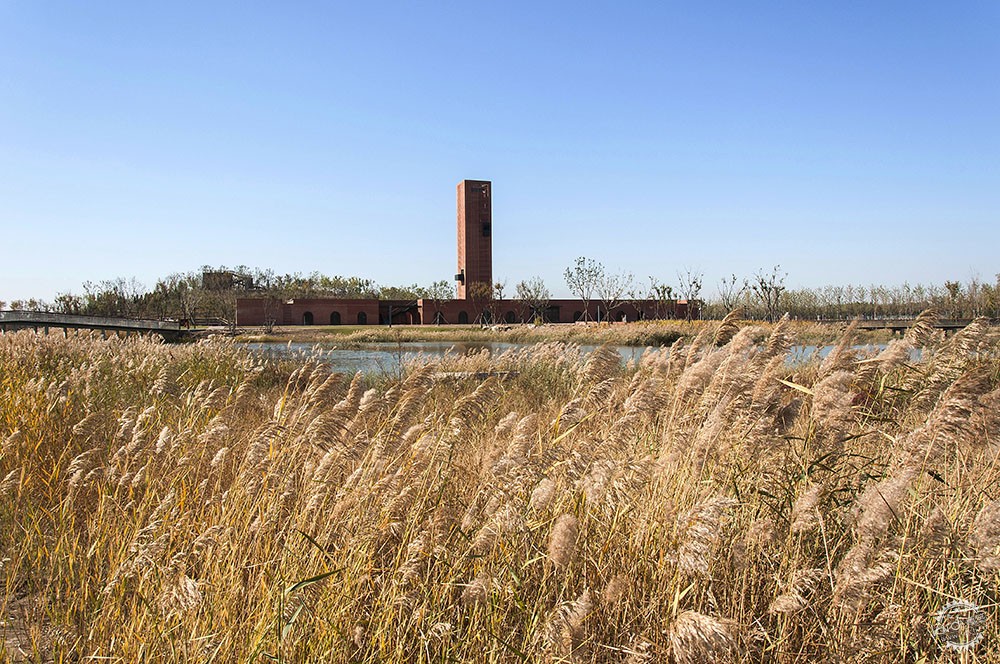
对岸望东立面/Overlooking east façade away
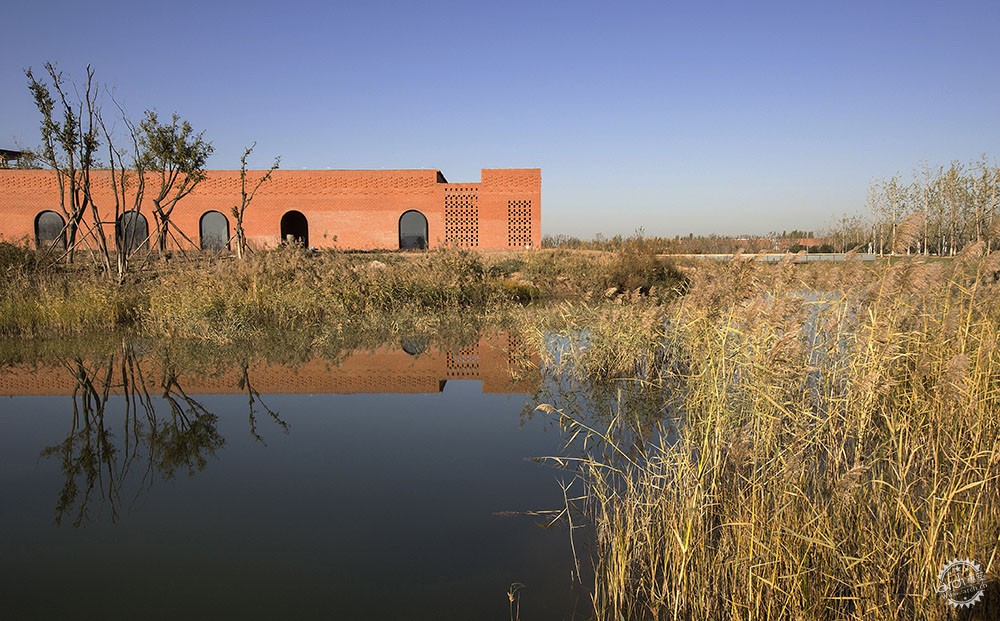
水岸边东立面局部/Overlooking east façade by the lake
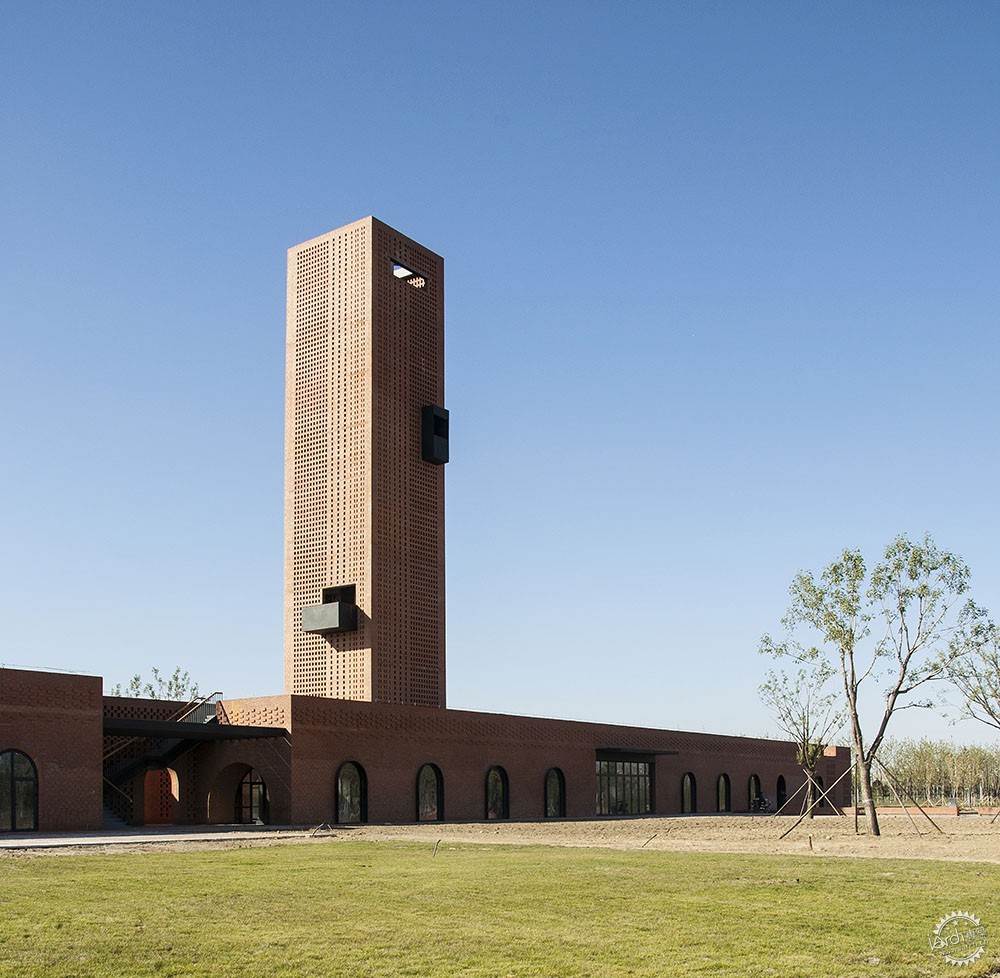
东立面局部/East façade
场地与历史
衡水湖湿地公园与衡水市区之间,曾经有一块芦苇丛生的洼地,多年来周边工厂的排污令这里的水质和土壤环境收到严重伤害。作为旷野中唯一的建筑,砖窑高耸的烟囱极有辨识性。随着国家保护耕地,禁用实心黏土砖的政策,这类曾经遍布城乡的霍夫曼窑,瞬间退出历史舞台。这座砖窑也荒废下来,成为无主之物,逐渐坍塌。人的记忆敌不过城市发展速度,要不了几年,大家就会以为这里从来都是衡水植物园。这种与过去完全告别的方式不免有些可惜。所以即使结构的安全鉴定是“拆除”,我们还是希望能够通过新的建造串联场地的过去和现在,为这里留下些历史的痕迹。
Place and history
The project began with an abandoned Hoffman brick kiln, which was located between Hengshui wetland park and the city proper of Hengshui. It was formerly a place where factories nearby used to drain their sewage water onto. As the only building on wetland, the brick kiln was highly recognizable with its chimney. However the Hoffman kiln was gradually abandoned due to the national policy that banned the burning of bricks out of clay as an environmental protection measure. The building was eventually demolished by the government due to its collapsing condition. With the new governmental plan to convert the wetland into a botanic park, the project called for the design of a botanic art center on the same site of the former kiln. We decided that the memory and history of the demolished kiln has to be recalled and remembered with the new architecture. We hope to connect the past and the present of the place with the project.
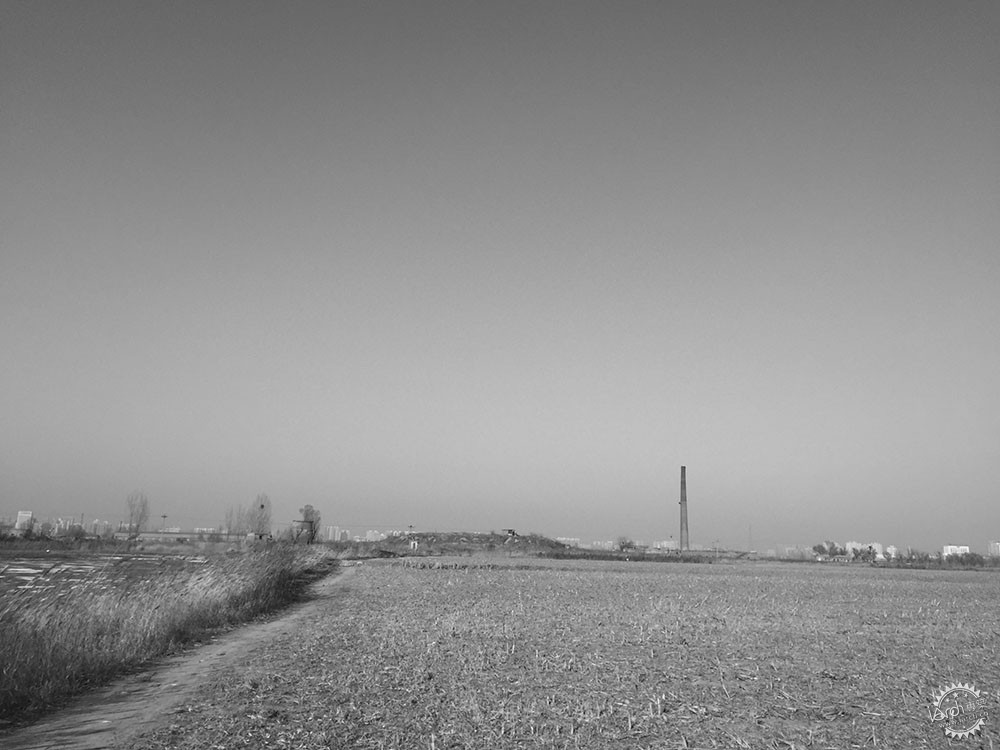
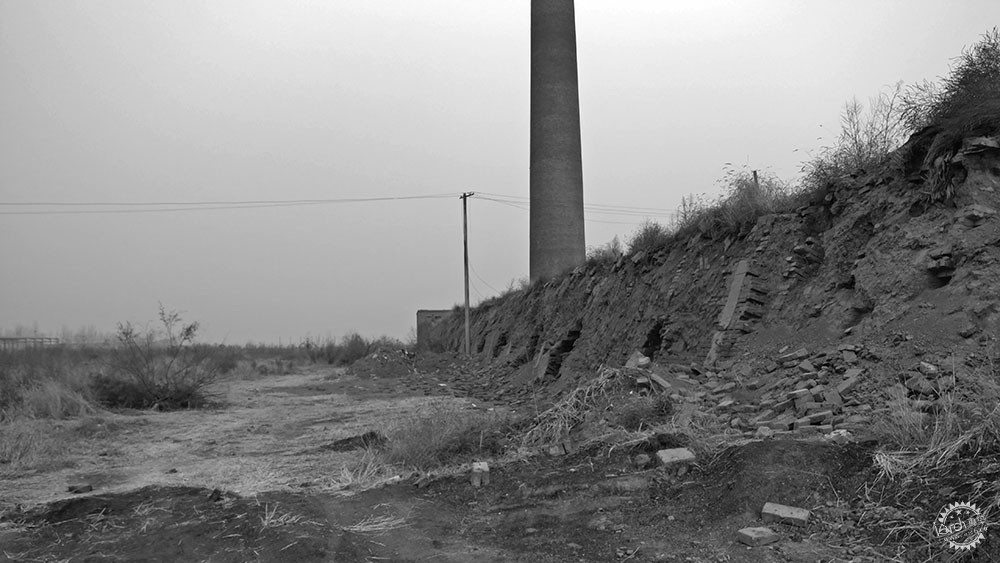
重建≠复制
业主计划在砖窑的旧址上修建一个花房艺术中心,主要用来展示花卉盆栽。从空间上,它需要完成从内向的生产建筑(砖窑)到外向的展览建筑之间的转化。通过对砖窑空间意向的保留,形成砖窑所代表的过去与花房之间的内在联系。其中观景塔保留了大烟囱的符号性,形成一个具体的记忆点。从可达性上,也能让人“爬上烟囱看一看”。
Reconstruction ≠ Replication
The new botanic art center is mainly a gallery showcasing plants, potteries and floral art. The new architecture is therefore a public facility that contrasts with the old kiln which was a introversive building purely for industrial production. With the intention to connect to the spatial history of the place, the new botanic art center has a massing and spatial composition that references to the old kiln but programmed with contemporary functions and experience. In doing so, the past and the future of the site are conceptually connected. The observation tower preserves the symbol and memory of the former chimney and the accessibility of the tower allows people to "climb up the chimney".
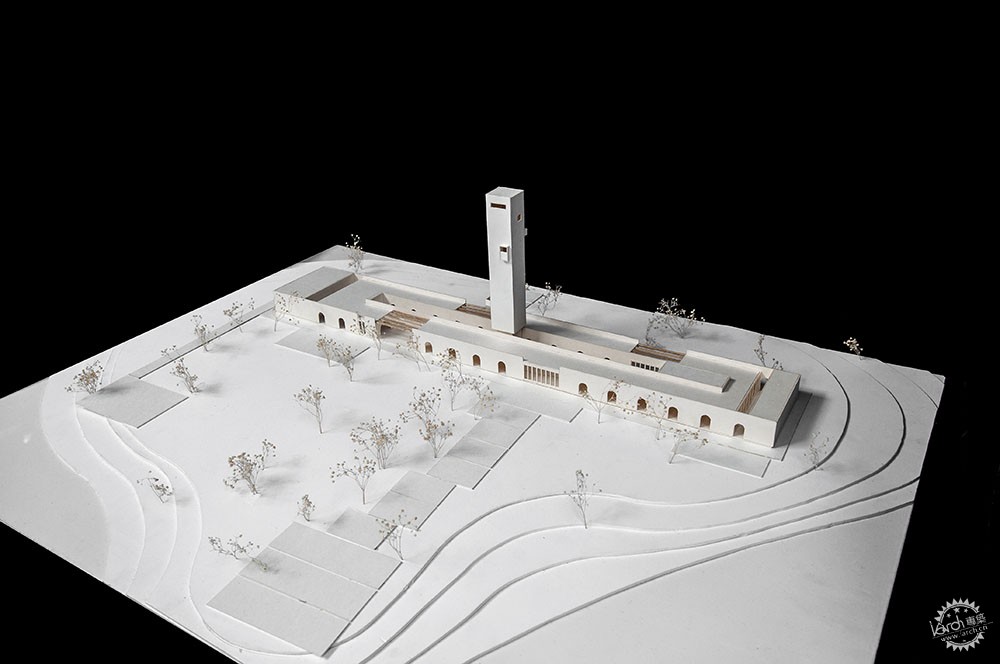
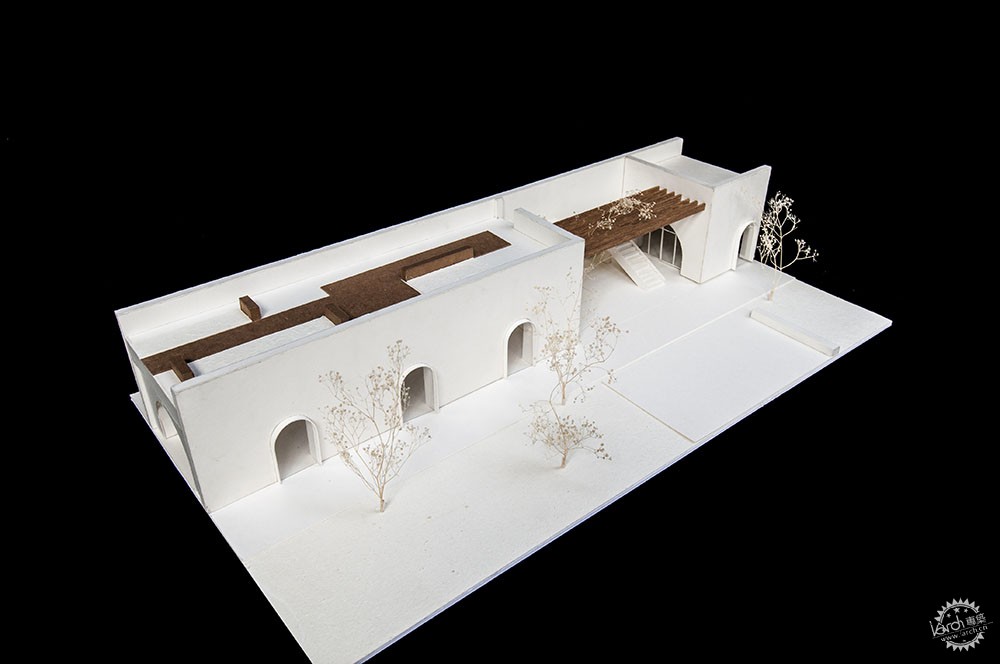
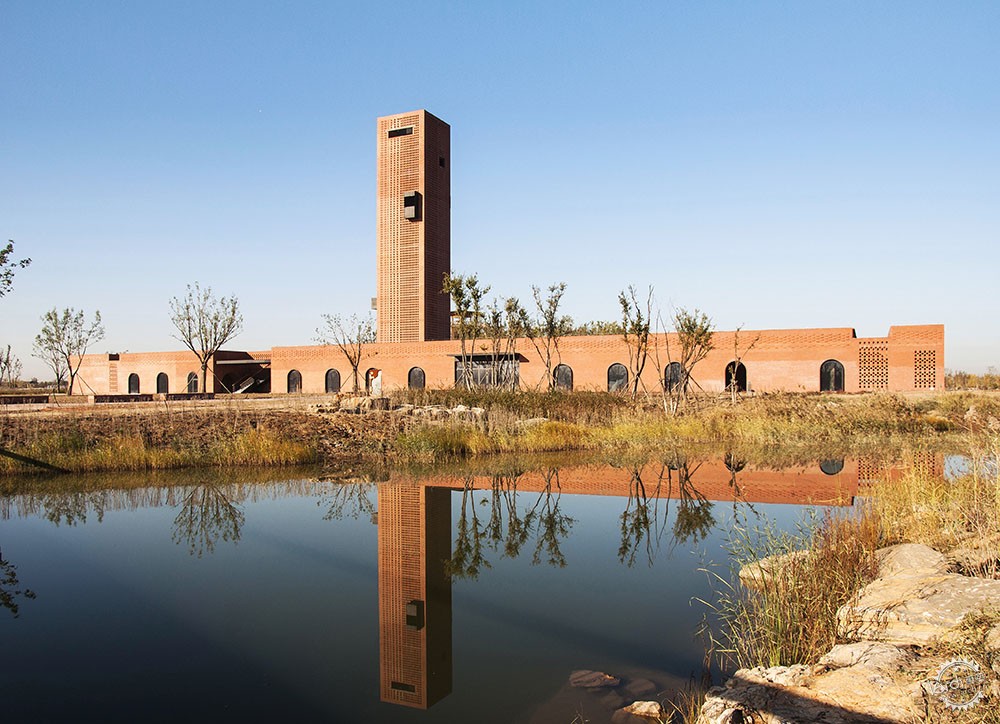
水岸边看东立面/Overlooking east façade by the lake
空间从内向到外向的转化
砖窑是一个外人禁入的生产性建筑,外廊是烧制砖坯的隧廊,中心是封闭的烟道。花房艺术中心从平面参考了霍夫曼窑,由环形拱廊包围中间内院的形式组成一个回字形平面。
Transformation from introversion to publicness
While the old kiln was an industrial building with no public access, the new botanic art center opens to the public as an cultural and exhibition architecture. The spatial composition of the botanic art center conceptually refers to the old Hoffman kiln with a looped and vaulted space surrounds a central courtyard.

霍夫曼窑平面/plan of Hoffman kiln
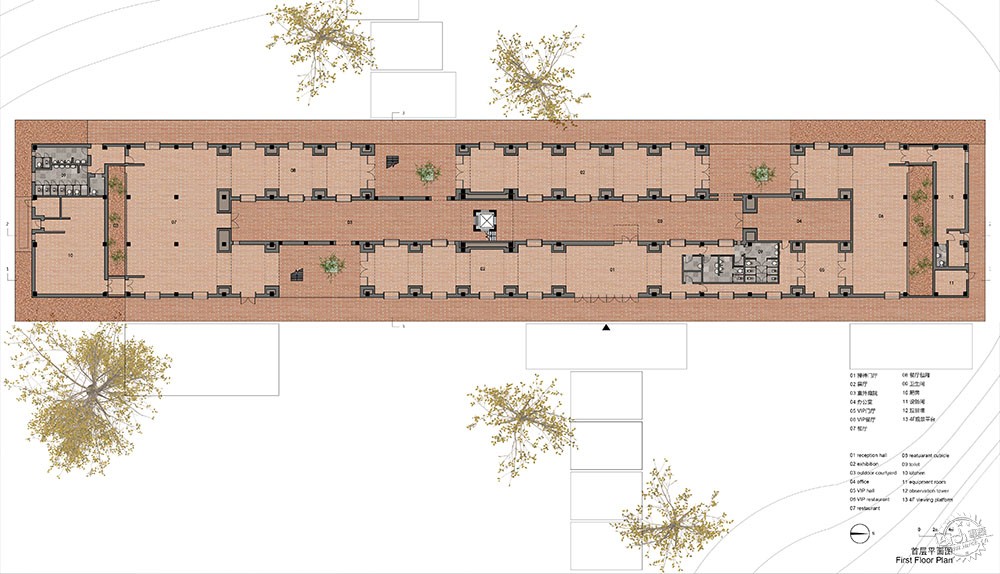
花房艺术中心平面/plan of botanic art center
花房艺术中心面向公众开放,有科普展示功能。公共性在几个层面体现:通过打断外圈的拱廊打开内院,形成半开放的小广场。这些小广场将内院与周边环境联系在一起,内部与外部、景观与建筑的边界被模糊化。这些院落形成观景塔入口的同时,也是游客快速穿越建筑的路径;裙房的屋面被设计成一个向公众开放的屋顶花园,提供一个非常规的游览角度;南北两端的餐厅和厨房之间设置院落,即满足功能分区也增加采光。
Along the vaulted arcade, several courtyards are proposed and breaks the spatial continuity of the space, creating a blurred boundary between landscape and architecture, between interior and exterior, while also connects the inner central courtyard with the bigger environment. The roof garden of the podium also opens up the building and created unique viewing experience outwards. Courtyards are also proposed in between restaurants and kitchen at the northen and southern end of the building and allows better natural light into the dinning space.
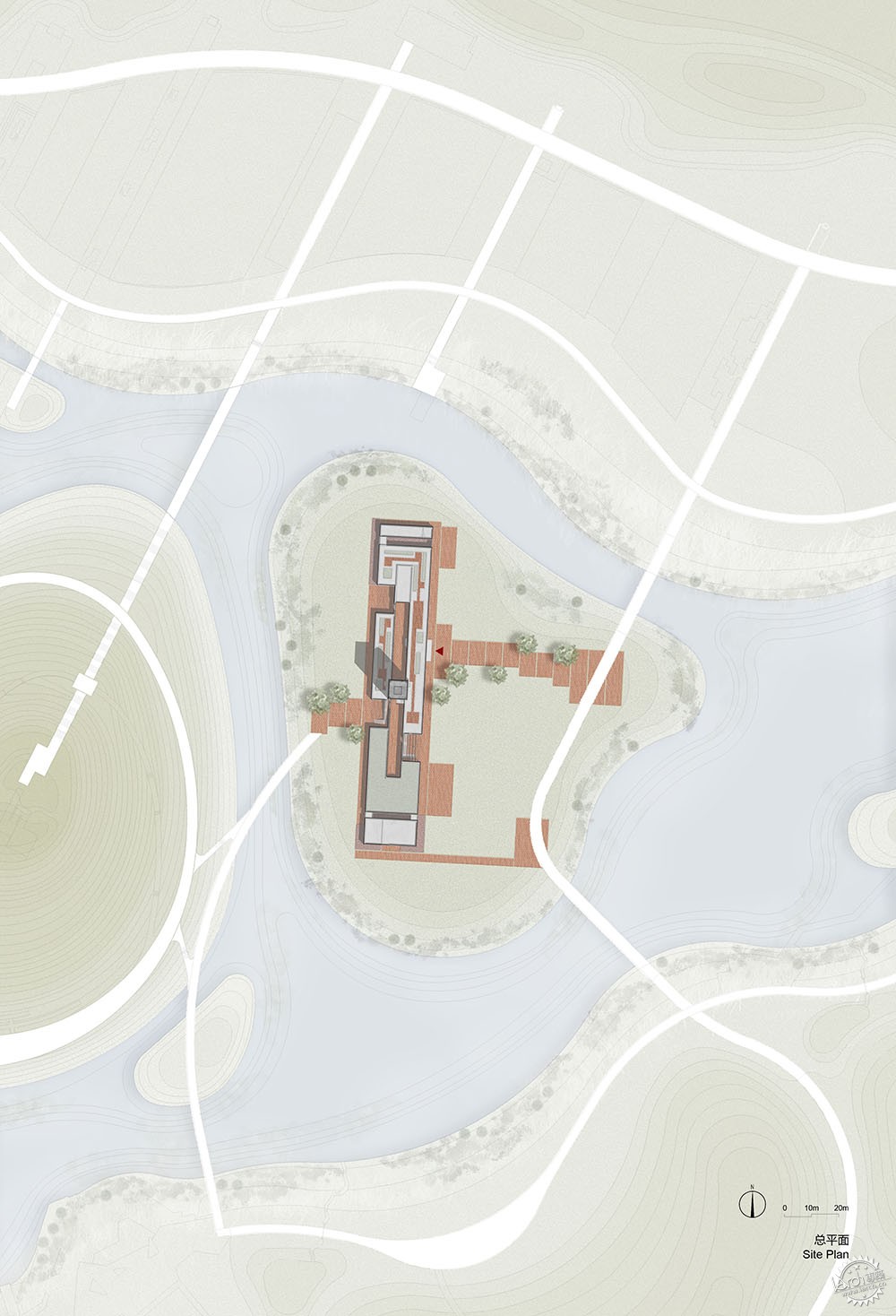
场地平面图/site plan
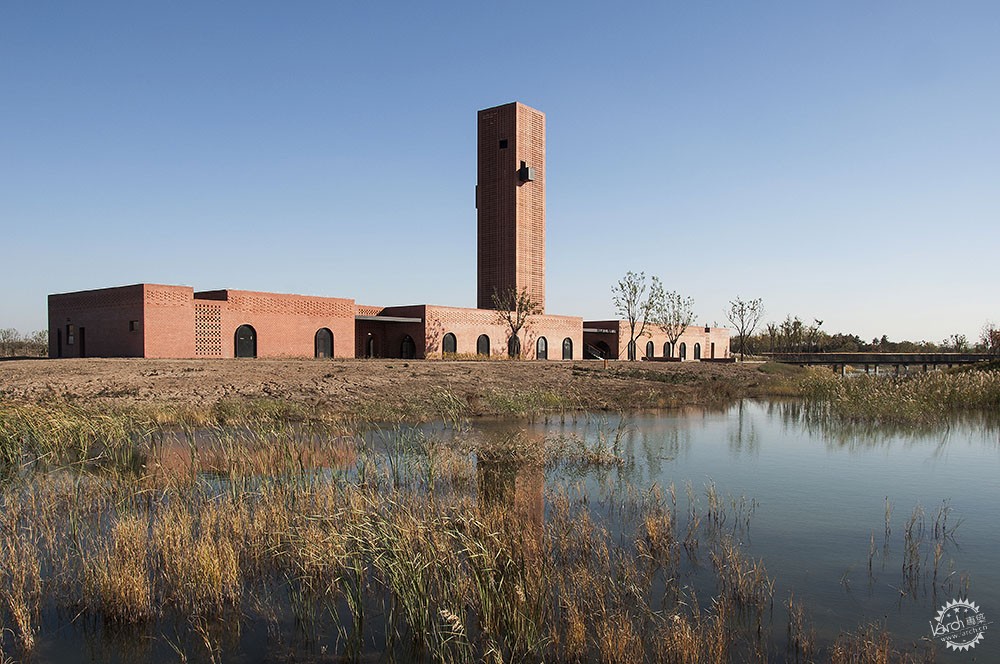
水岸看西立面/Overlooking west façade by the lake
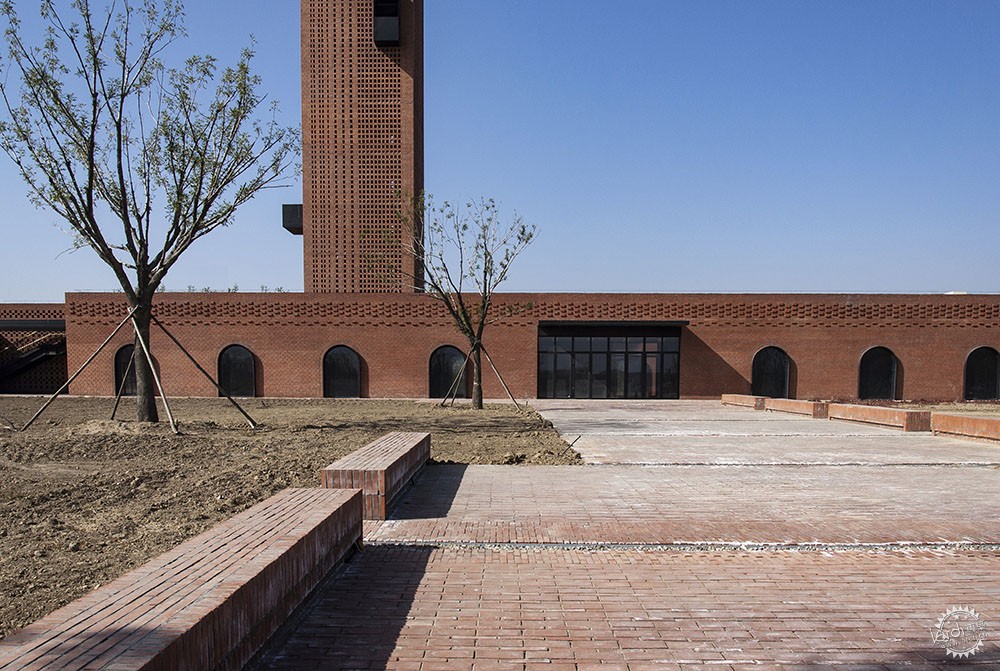
主入口广场/Main entrance plaza
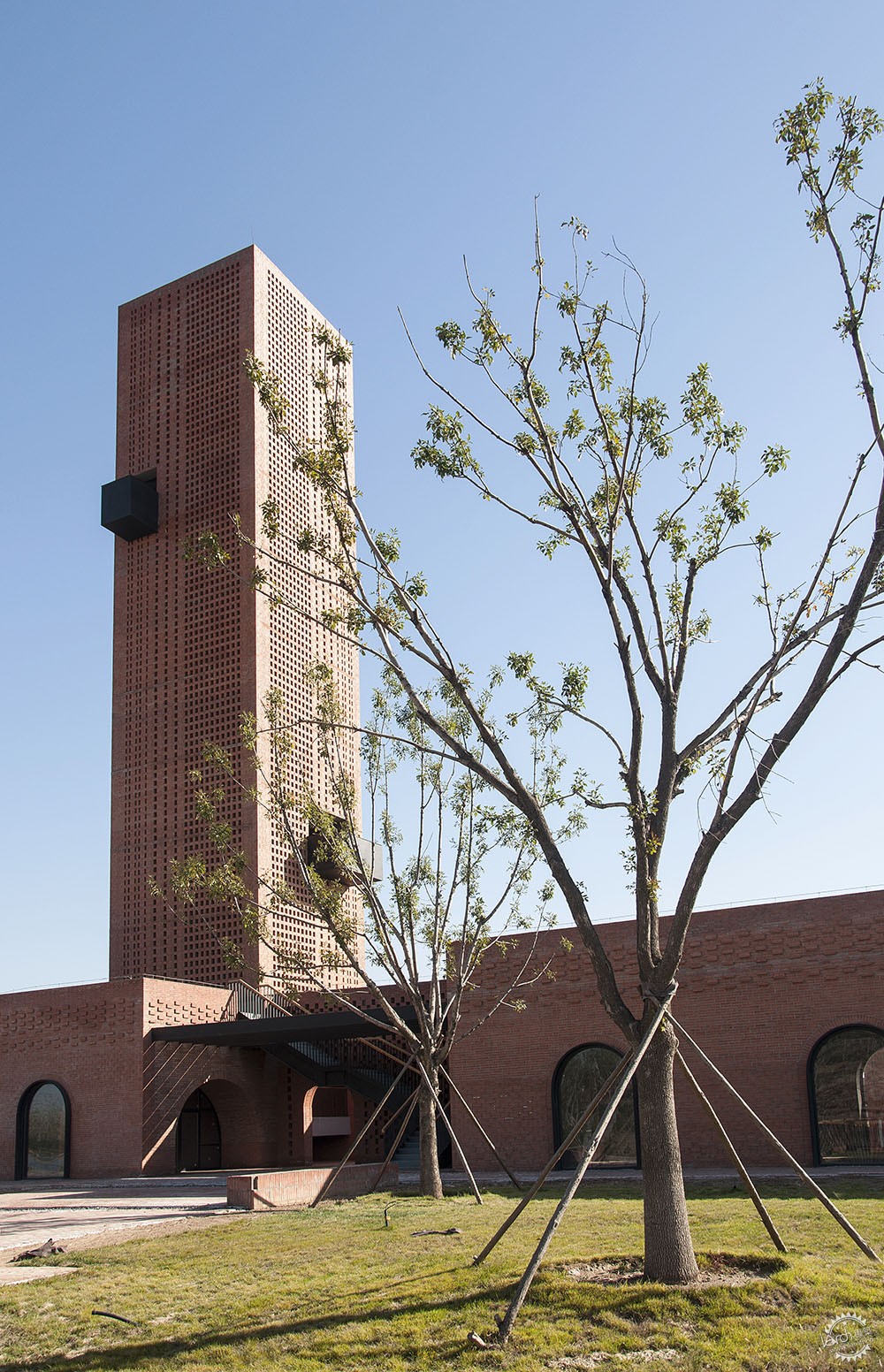
西侧入口/West entrance
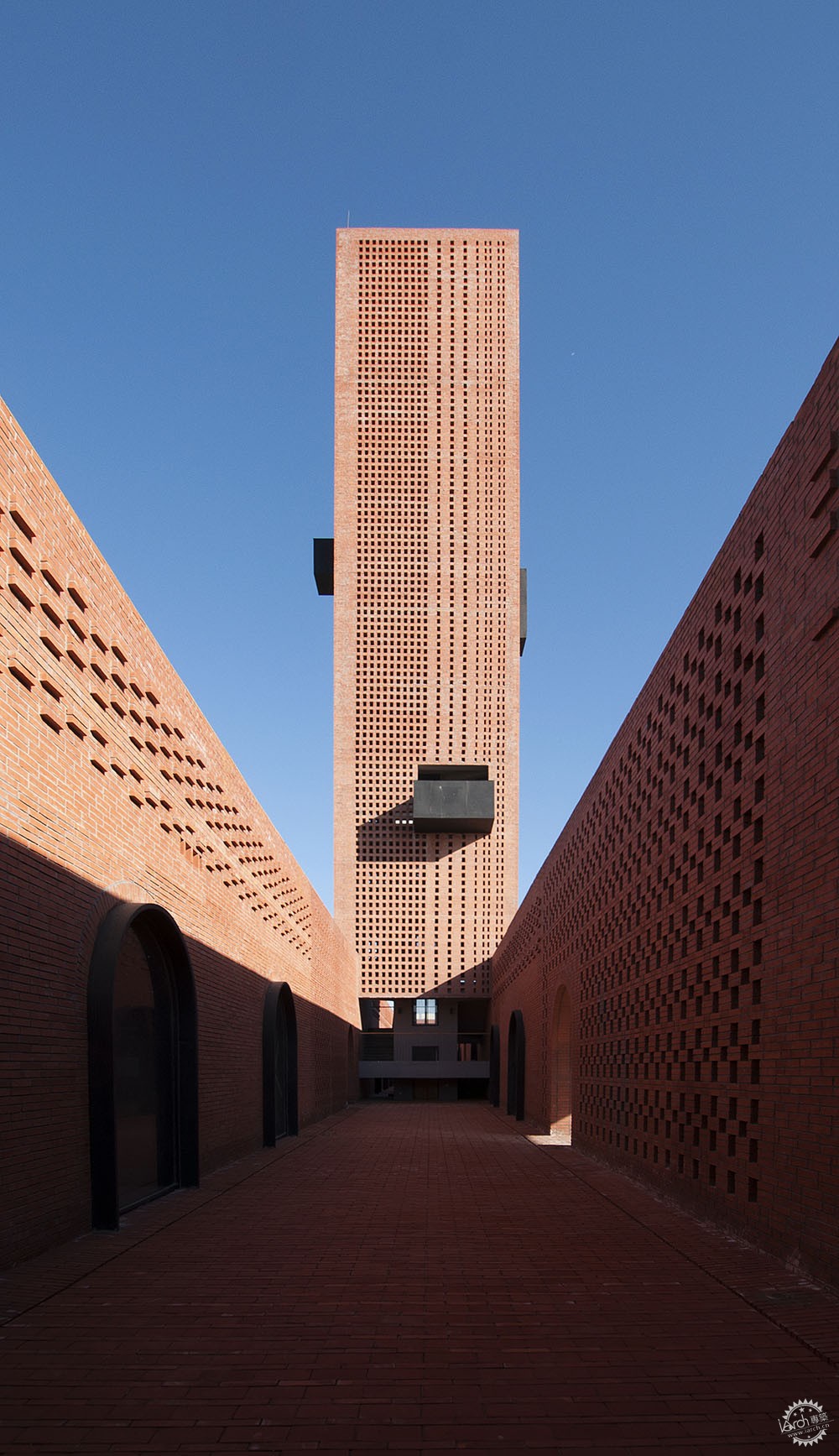
内院望观景塔/Inner courtyard overlooking tower
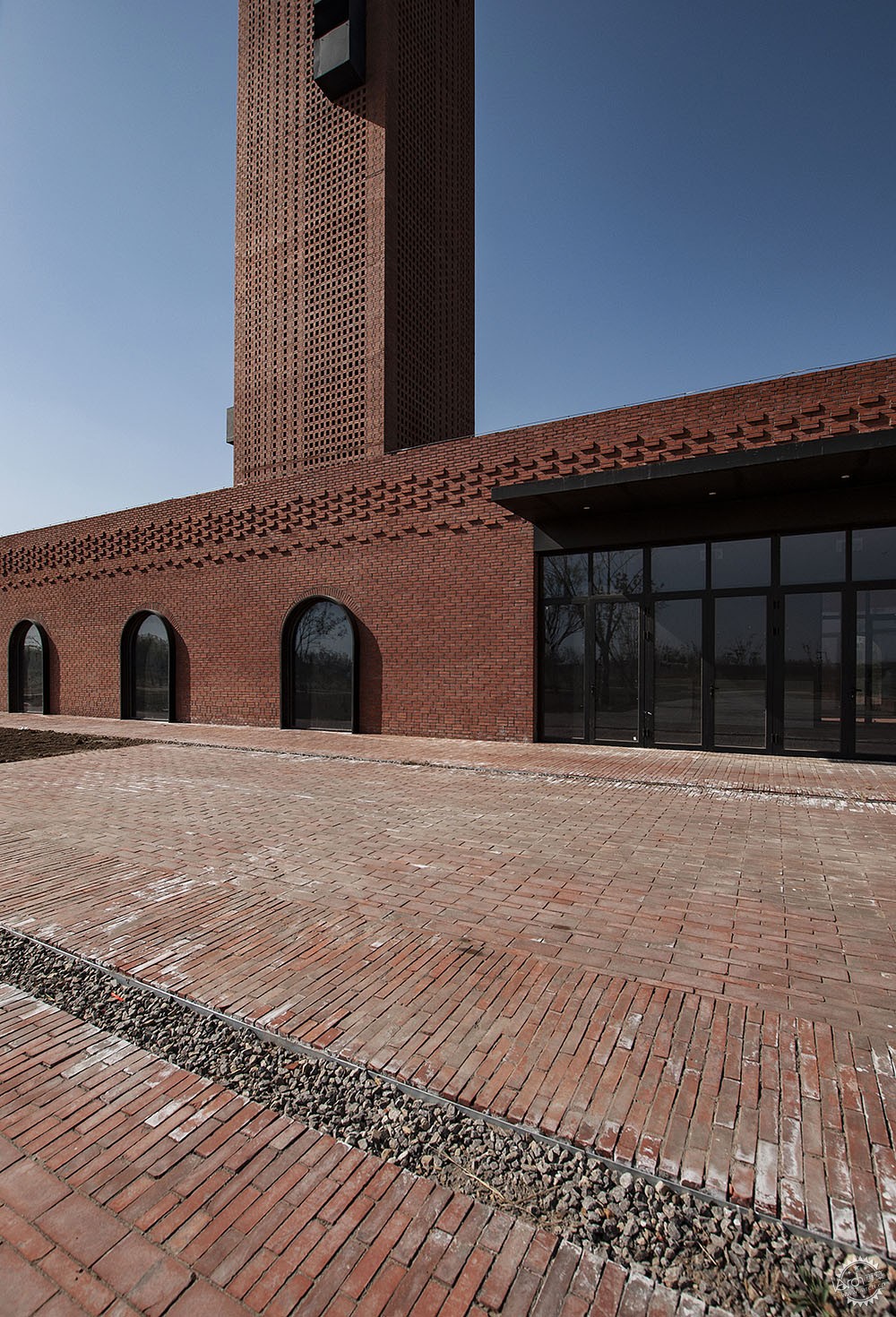
主入口/Main entrance
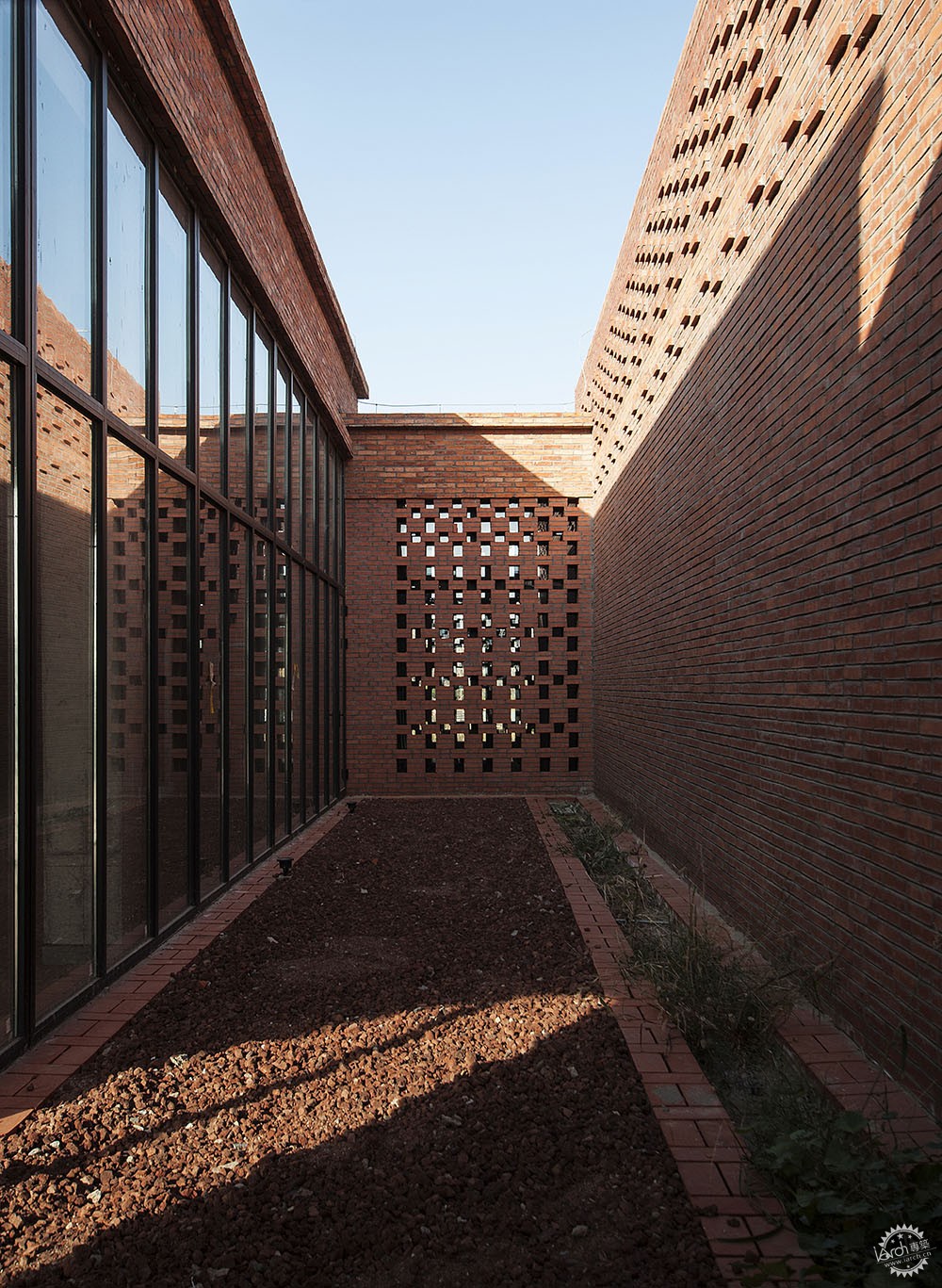
餐厅院落/Courtyard by the restaurant
环形拱廊与陈列空间的重合
规则排布的出入口使得光影形成规则的空间序列。设计将这种序列提取出来,形成一个个花卉盆栽展厅,关于空间与光影的记忆同时被记录下来。序列性的拱廊一方面在空间上对老砖窑环形外廊产生关联,一方面把展廊切割分段,定义了一个个相互连接的展厅空间。
Vaulted arcade as exhibition space
As opposed to a continous vault in a Hoffman kiln, the arcarde of the botanic art center is composed of a series of vaults which shows a visual and experiential progression of spaces in relation with light. The sequential setting of vaults defines seprate but interconnected galleries that house exhibition and records the relationship between space, light and shadow.

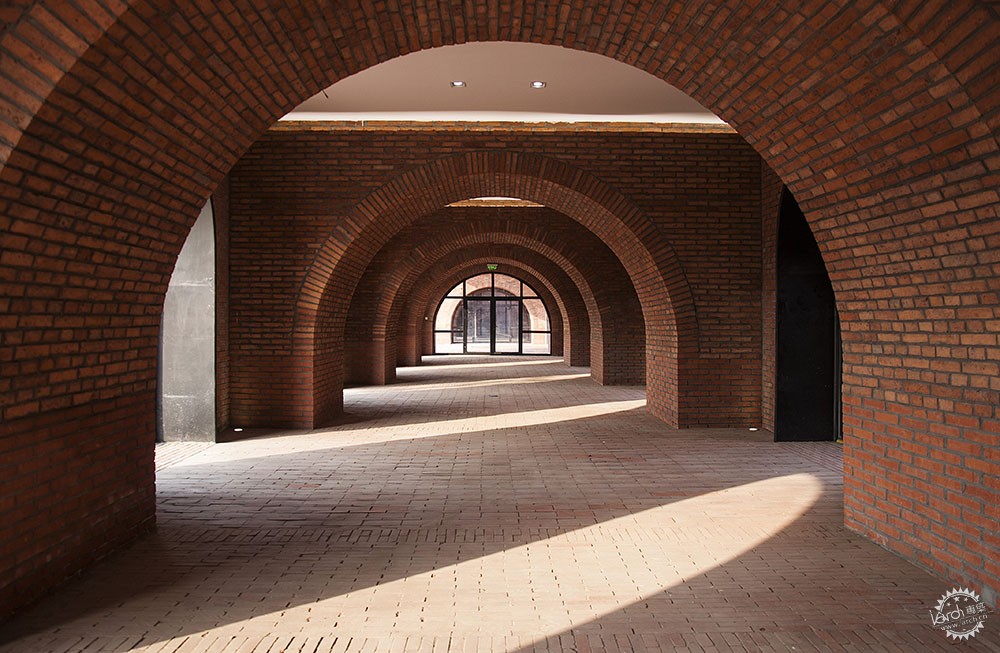
拱形展廊/Vaulted galleries

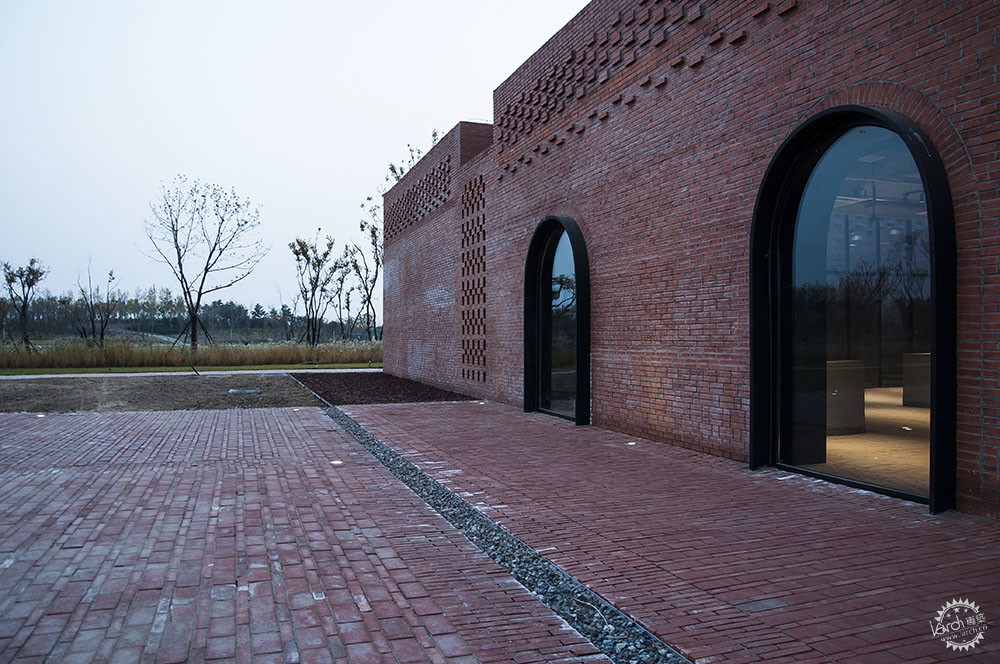
餐厅夜景/Night view of restaurant

拱形餐厅/Vaulted restaurant
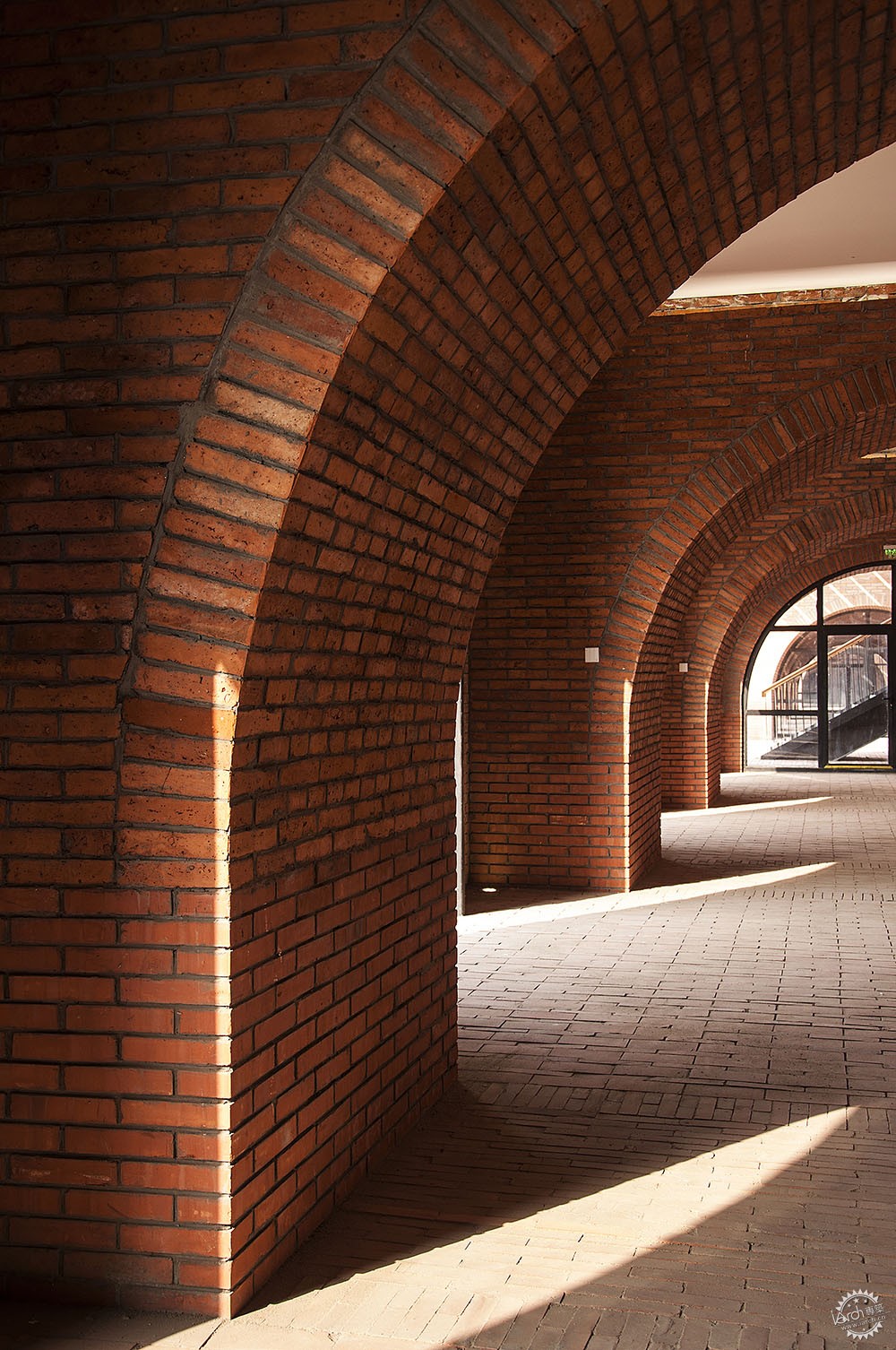
拱廊细部/Details of vaults
从烟囱到塔
很多人应该都有过爬上烟囱看看的想法。将砖窑最具符号性的烟囱部分转换为观景塔可以算是达成了很多人一直以来的心愿。人们可以选择电梯,也可以步行,登到塔顶。观景塔的四个方向在不同高度设有平台,给爬到不同高度的人提供不同的观景体验。
From chimney to tower
Every traditional kiln has a chimney and many people has the idea to climb on it. The proposition of an observation tower is reminiscent of the chimney and allows people to access the "chimney" with its four viewing platforms at different alttitudes, which offers different views and experiences of the botanic park.
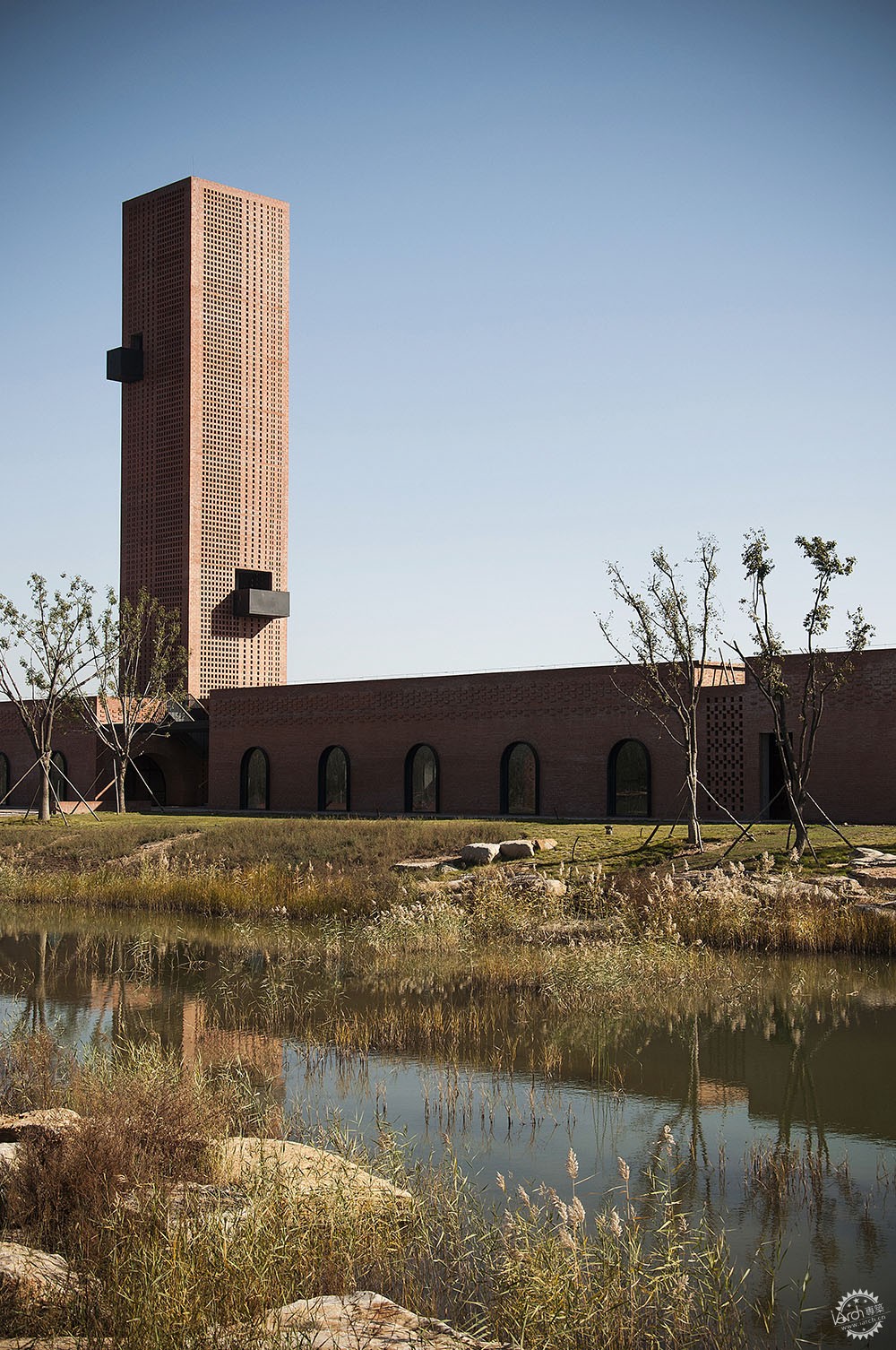
桥上看西立面/Overlooking west façade on bridge

观景塔/Observation tower
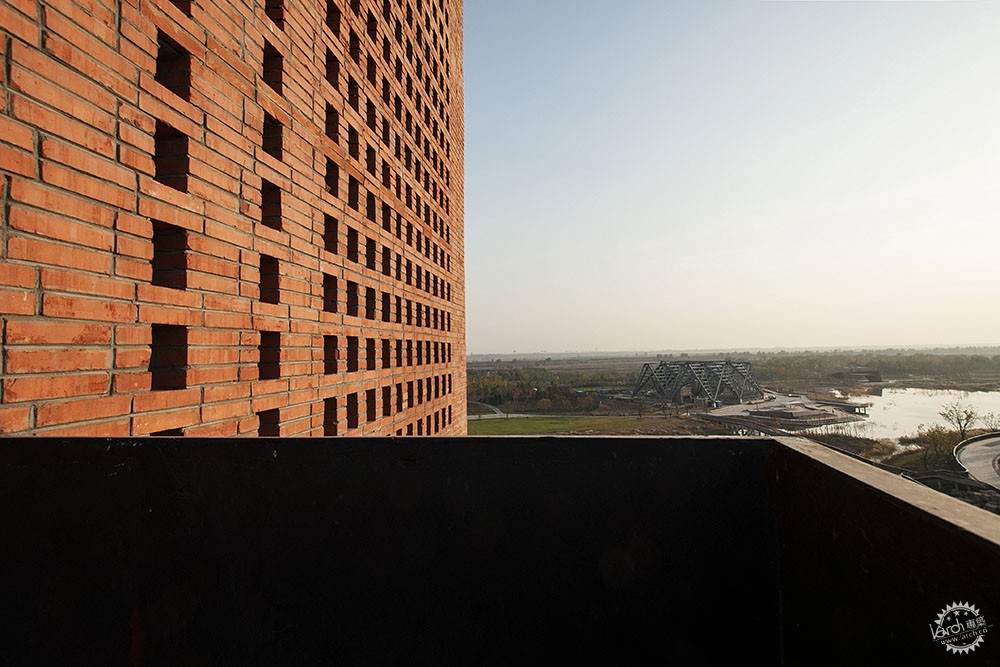
观景台远眺植物园/Overlooking the botanic park on the tower
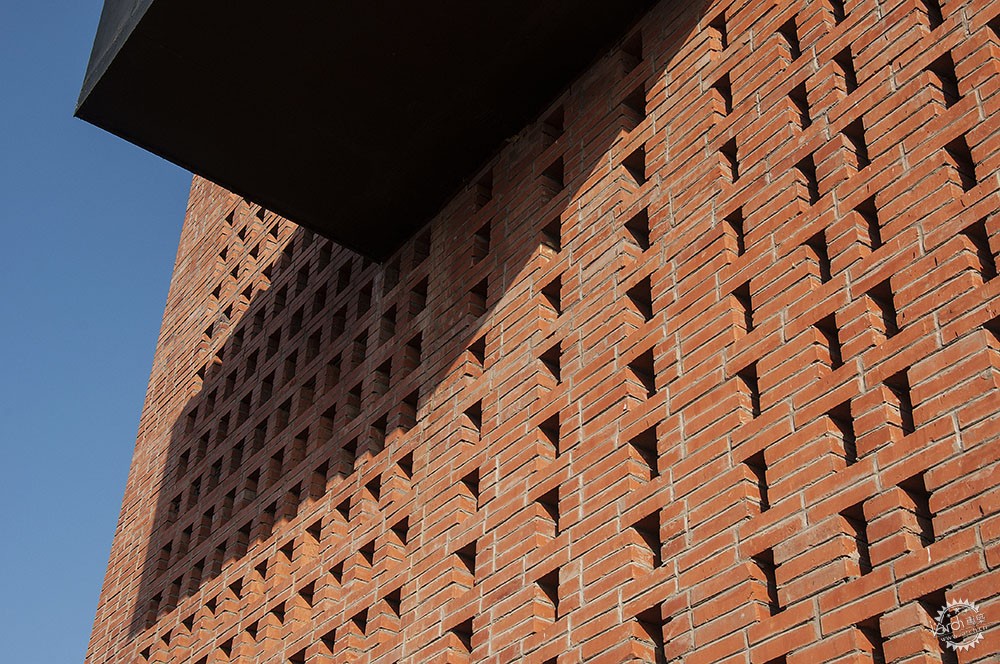
砖砌筑细部/Detail of brick facade
从材料到光影
黏土砖出于环保原因已经不可使用。原本建筑的红砖也早已风化,失去承载力。但面砖和劈开砖无论在颜色质感上都是无法接受的。这类砖也无法满足镂空的拼花要求。经过无数轮筛选,终于找到一种与黏土砖颜色、尺寸、比例都极为接近的页岩砖,作为回应场地历史记忆的物质媒介。
裙房部分的庭院空间采用镂空砌筑方式,暗示着庭院空间的公共性。红砖材料的通透性打破砖墙的沉重感,给人通透、公共的心里感知。
Materiality, light and shadow
Bricks were used as the main materials throughout the architecture and become a medium to recall the lost materiality and texture of the place.
Various kind of stacking patterns of bricks area used on the facade in order to generate translucency, which breaks the solidity and heaviness of brick wall, allows different light and shadow effects and promote the sense of publicness.
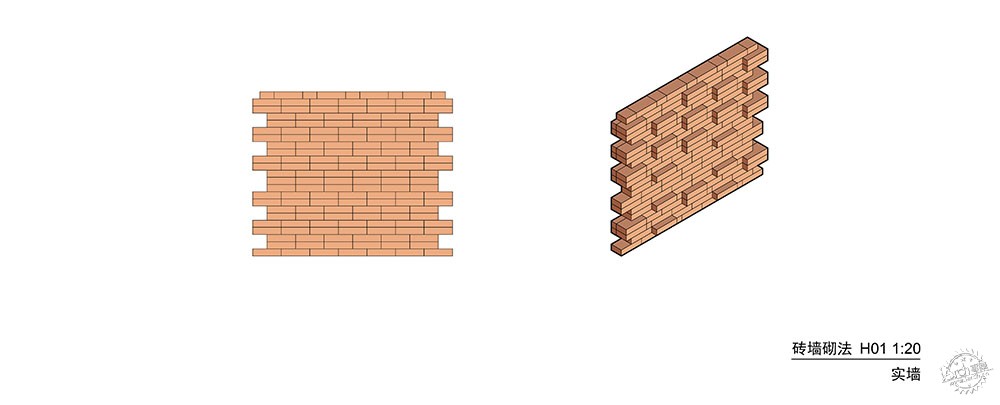


周边铺装/Surrounding landscape
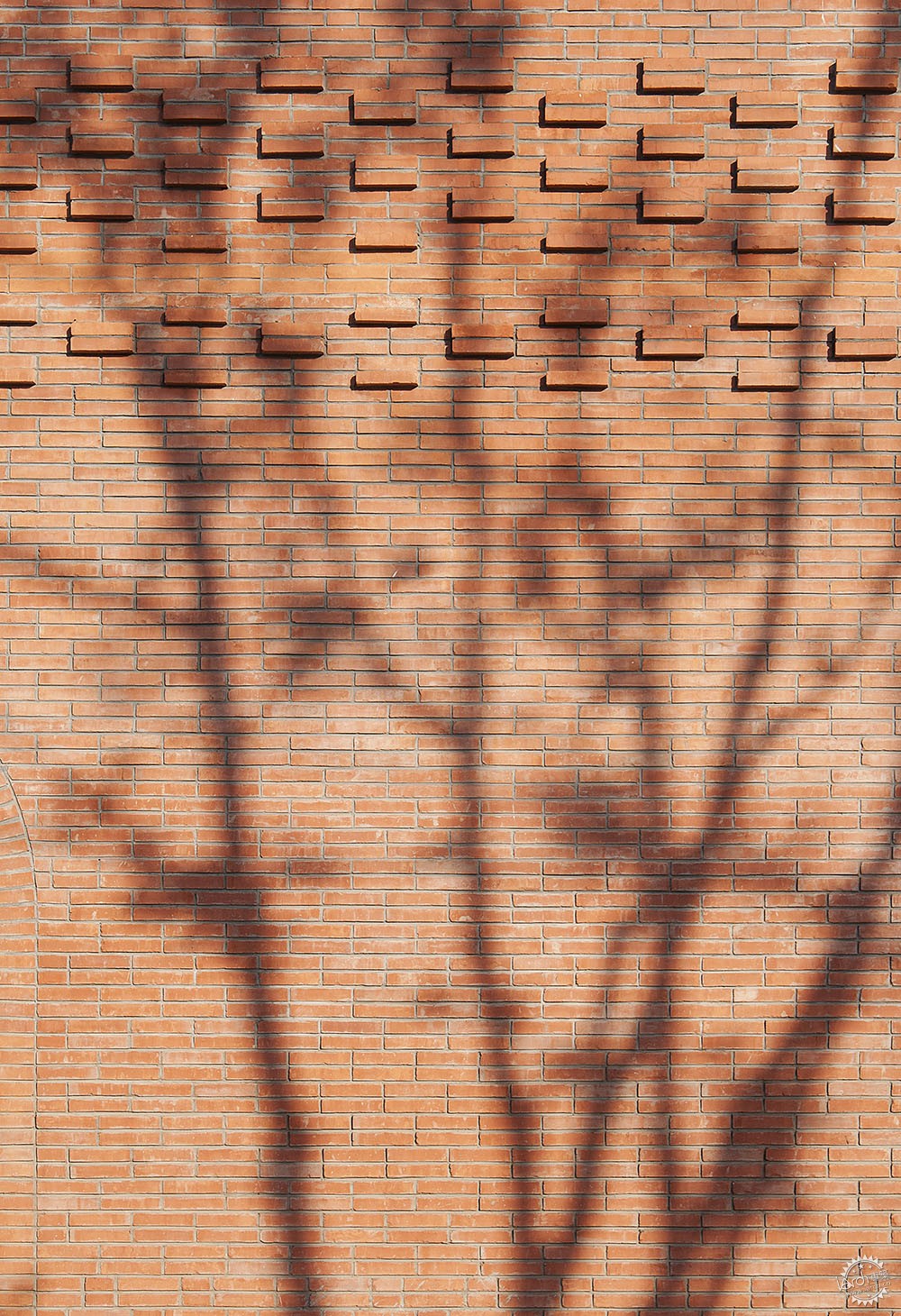
砖砌筑细部/Detail of brick facade

餐厅夜景/Night view of restaurant
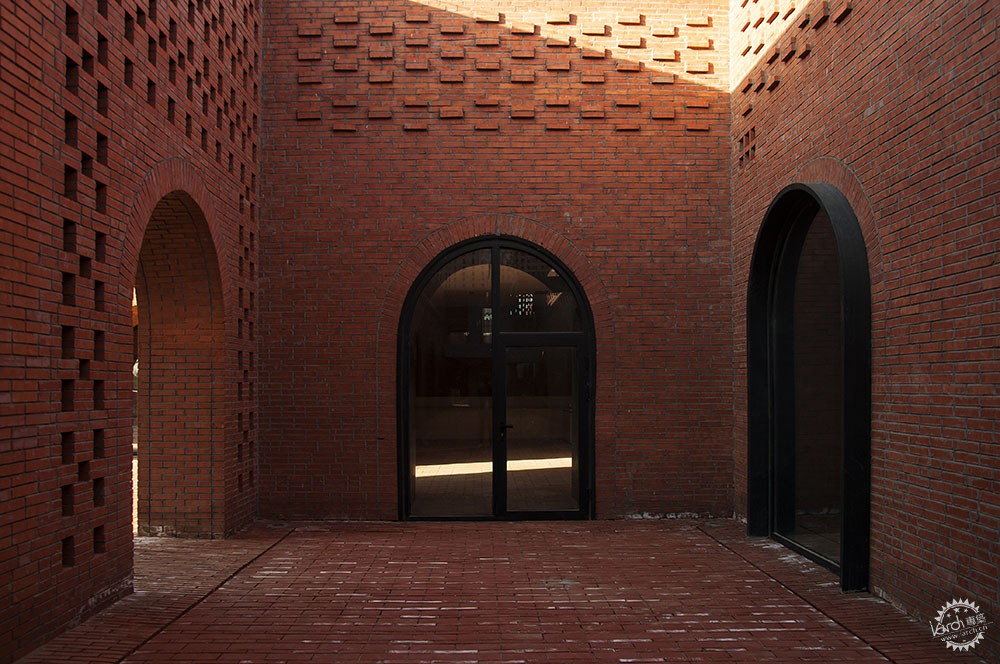
办公入口/Office entrance

内院入口/Inner courtyard entrance
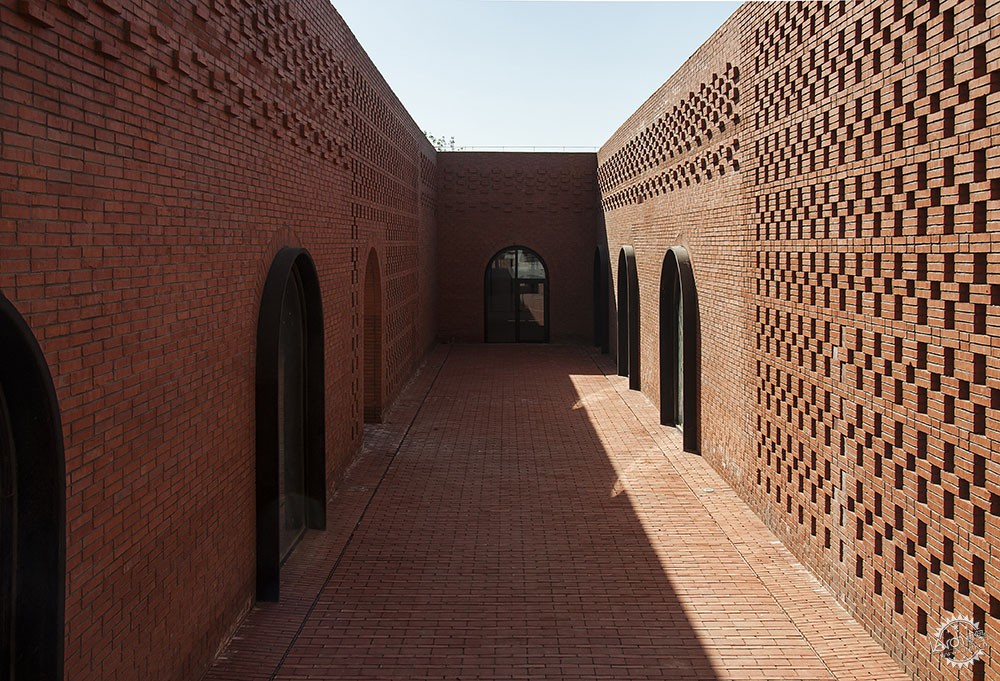
内院/Inner courtyard
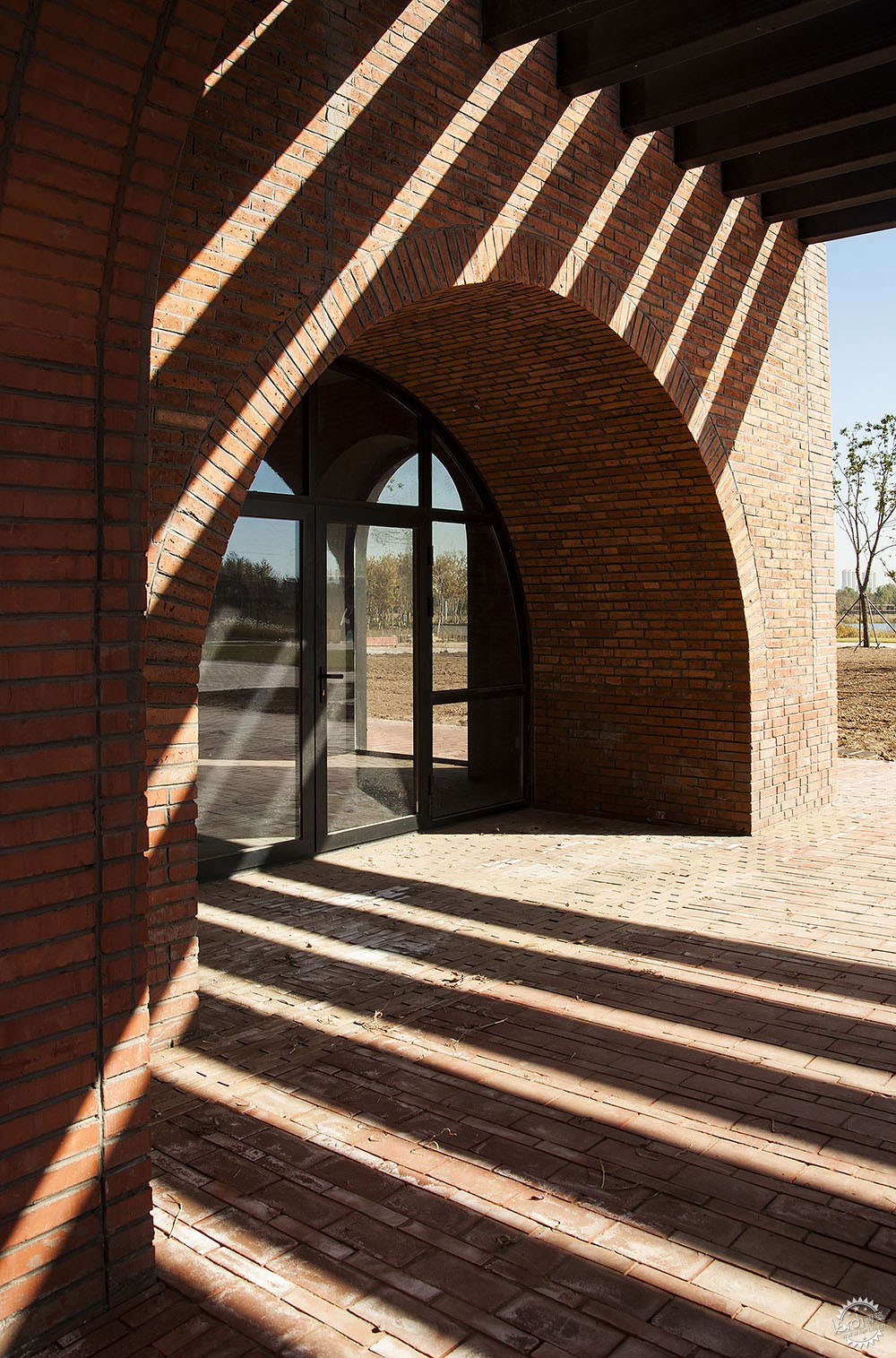
展厅入口/Gallery entrance
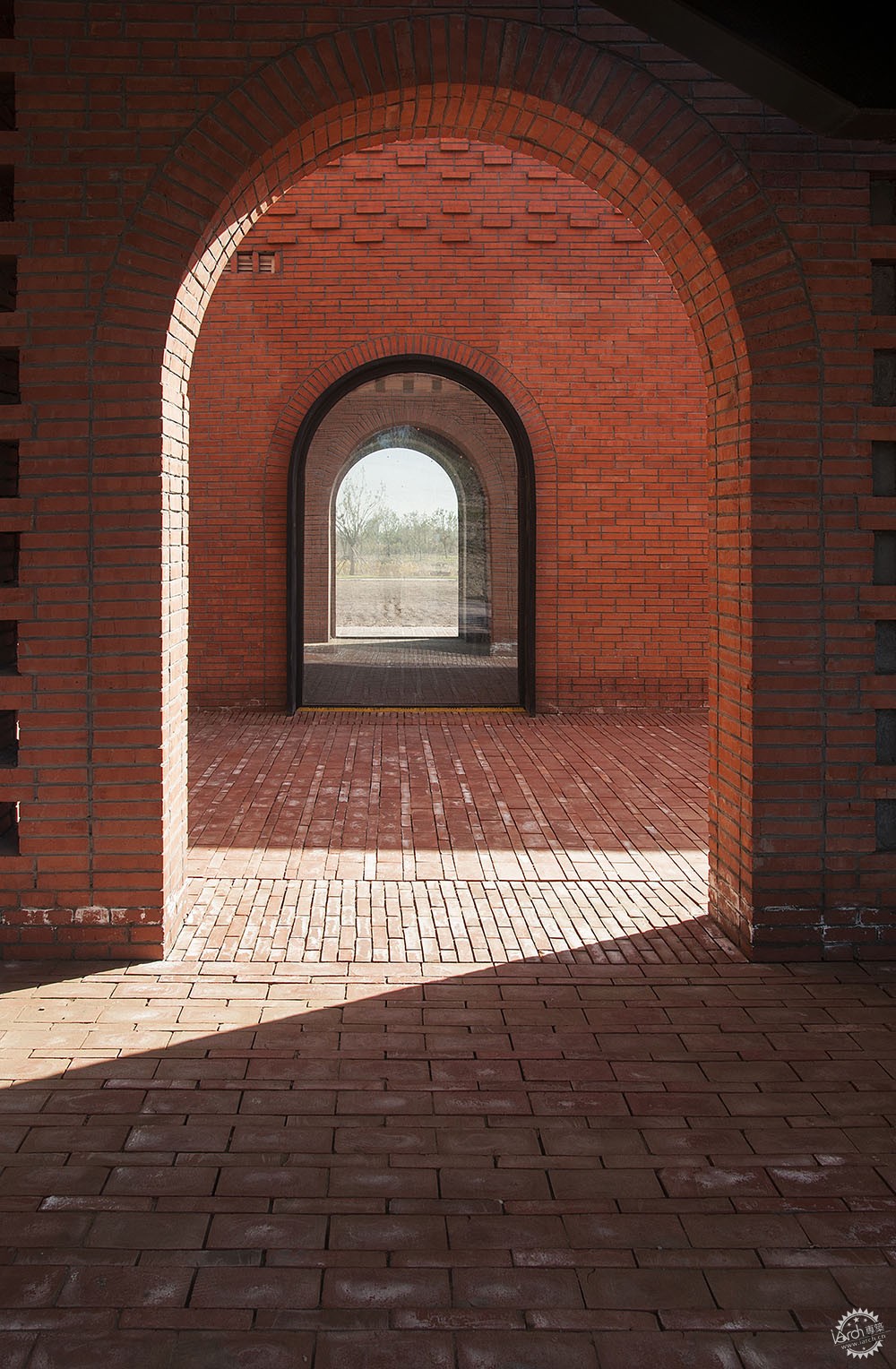
内院入口/Inner courtyard entrance
红砖立面采用了不同砌筑方法,控制质感的同时,形成不同开孔率。用建构的方式控制光影,空间的丰富性和趣味性都得到加强。观景塔上砖的镂空效果增加了内部楼梯间的采光、减弱塔楼的封闭性,在早晚太阳高度角比较低的时候,光线投影在墙上形成戏剧性的效果。
For instance, facade of the interior courtyards are made more translucent in order to imply the publicness of the space. The observation tower are cladded with bricks stacked more porously to allow more light into the the tower and weaken the heaviness of the tower.
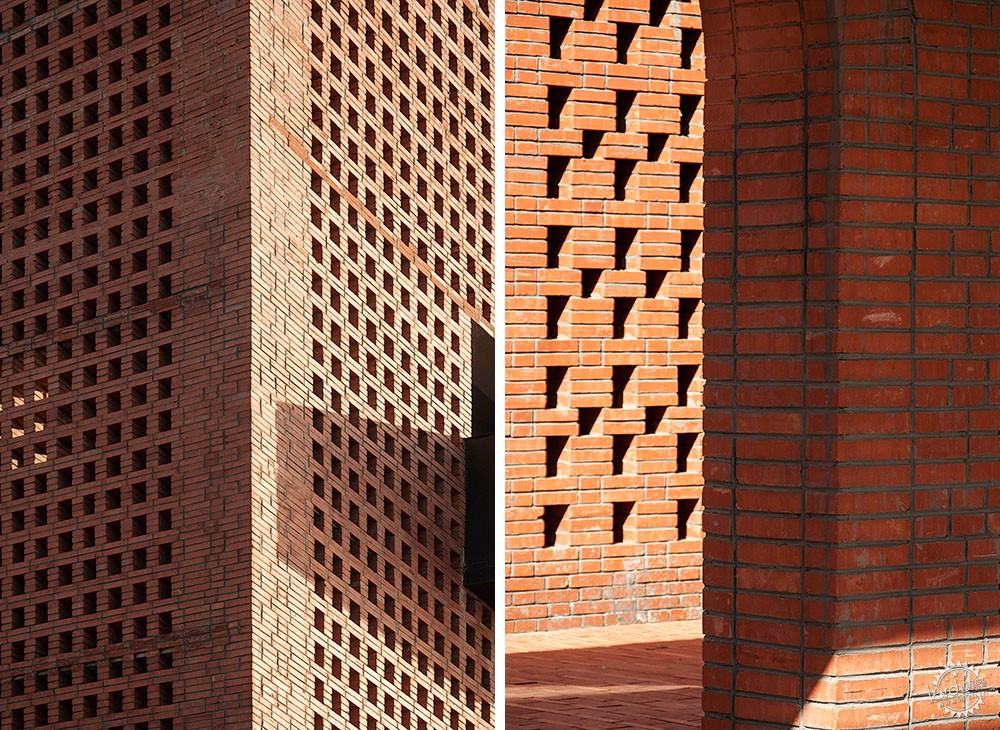
砖砌筑细部/Detail of brick facade
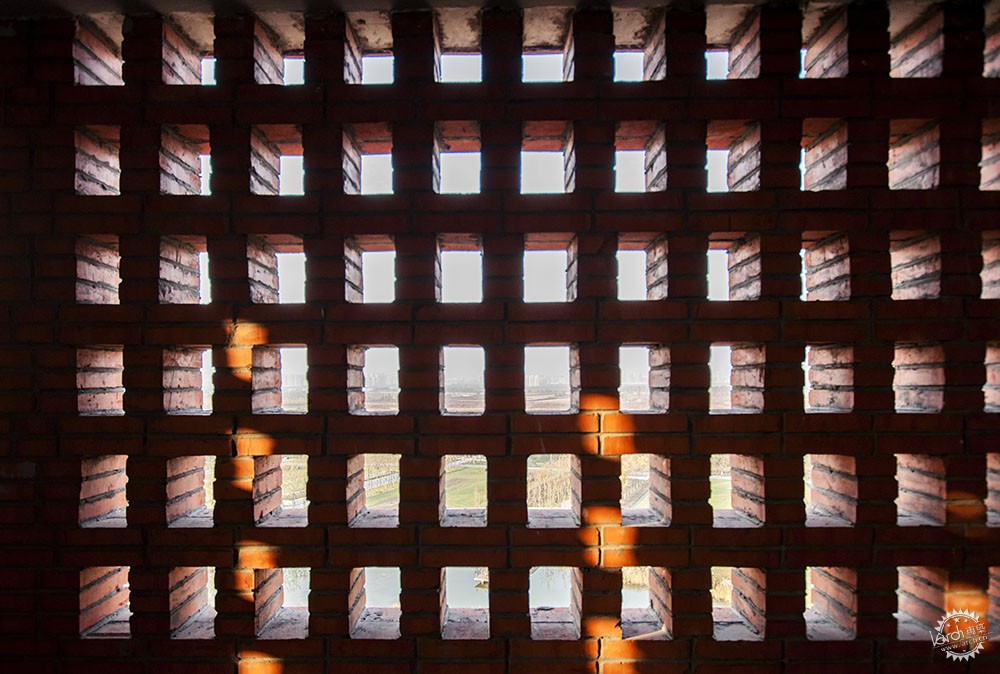
光影与通透性/Light, shadow and translucency
伴随着植物园建设和整体的环境治理,水质从浑浊到清澈,洼地转身成为湿地。植物园里的维护人员几乎都是周边村民,问路时,他们也许不知道花房艺术中心在哪里,但都能准确告诉你,“窑”在什么地方。
While the design of the Tower of Bricks has a reference to a traditional kiln, the new architecture holds a contemporary position in terms of the idea of publicness, connectivity to the environment and user experience. It emotionally extends local people's memory of the existence of a kiln. It is an architecture that connects history with future.
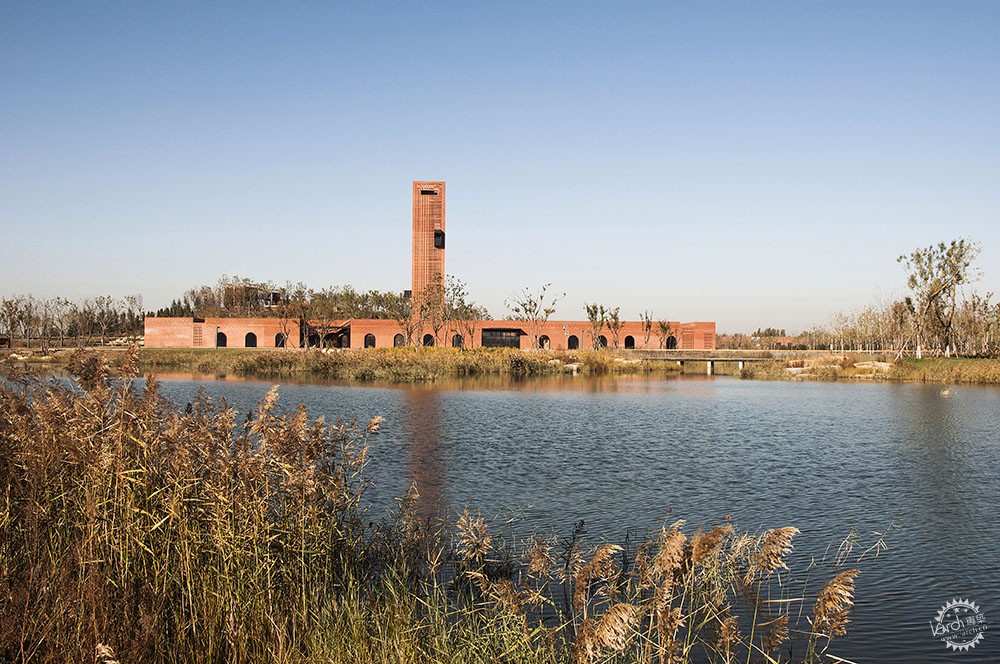
东立面/East facade
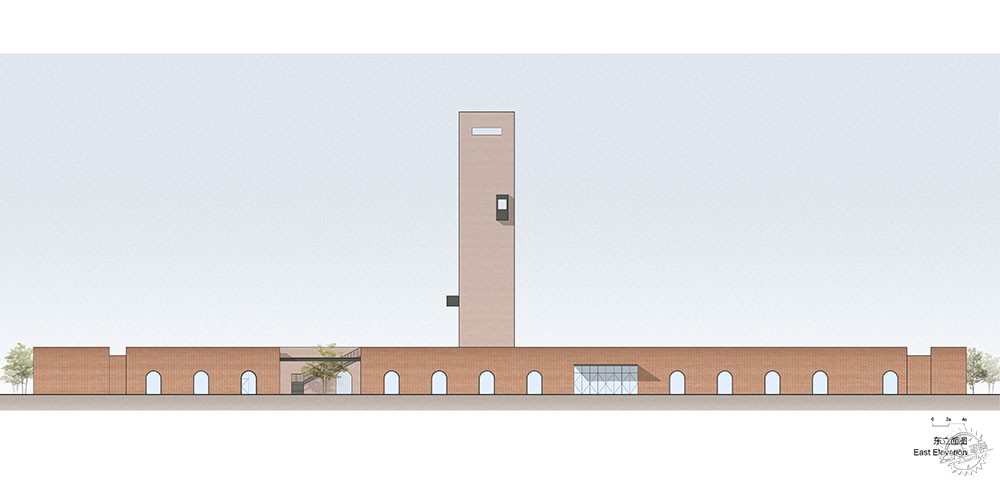
东立面/elevation-east
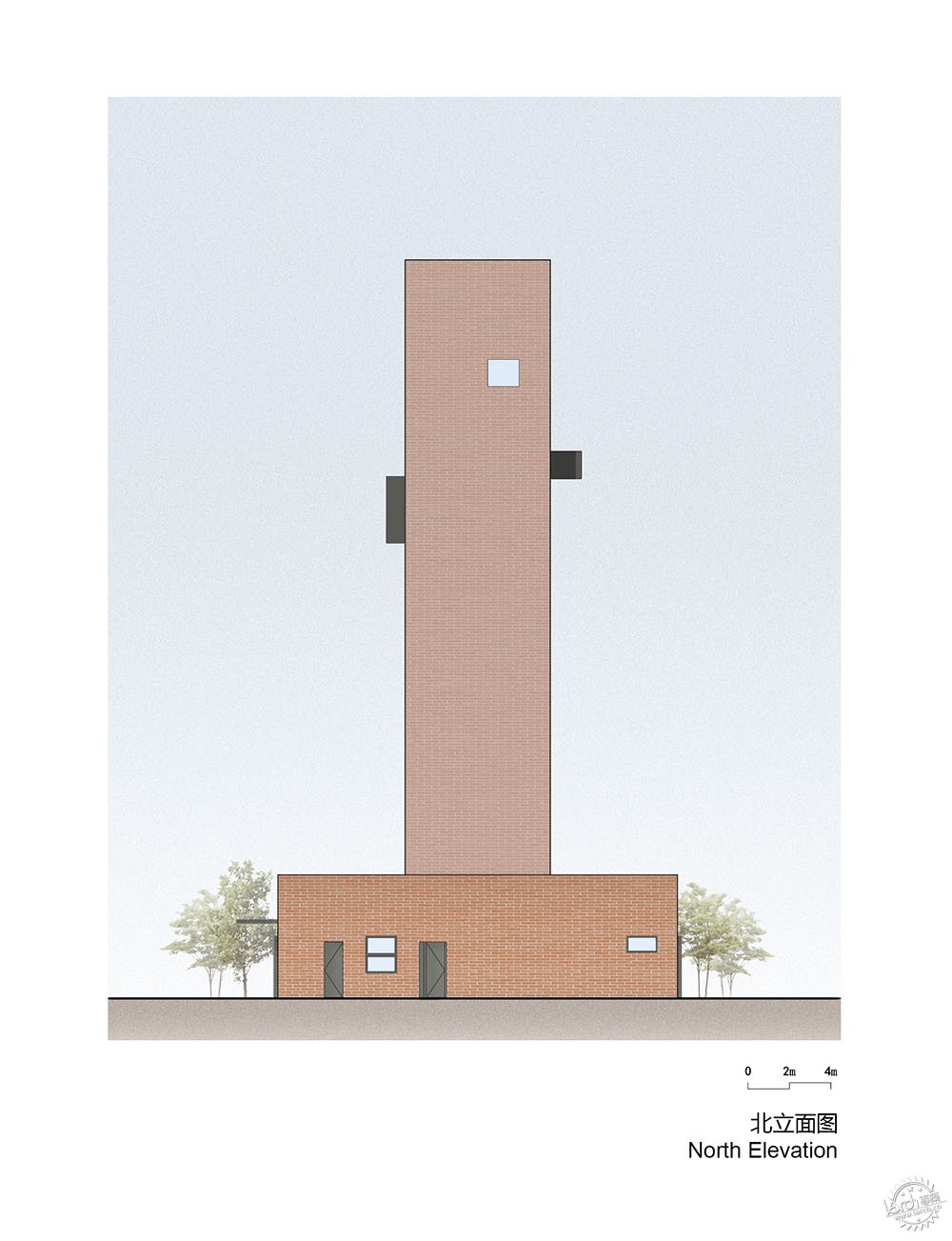
北立面/elevation-north
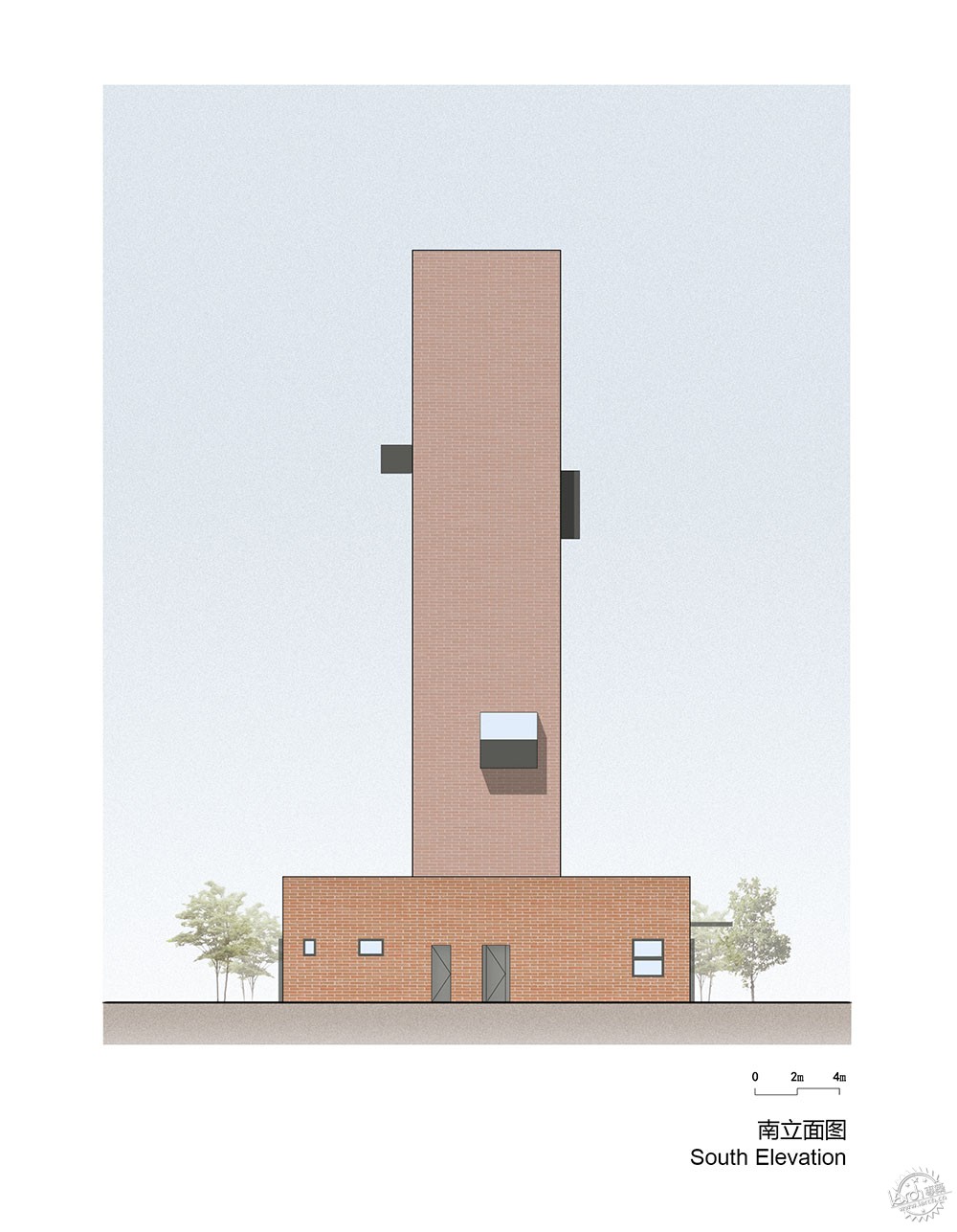
南立面/elevation-south

西立面/elevation-west
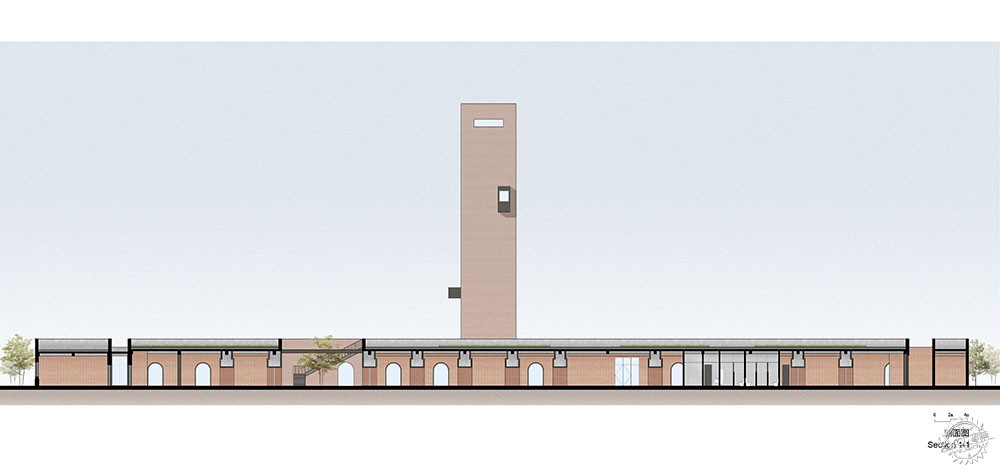
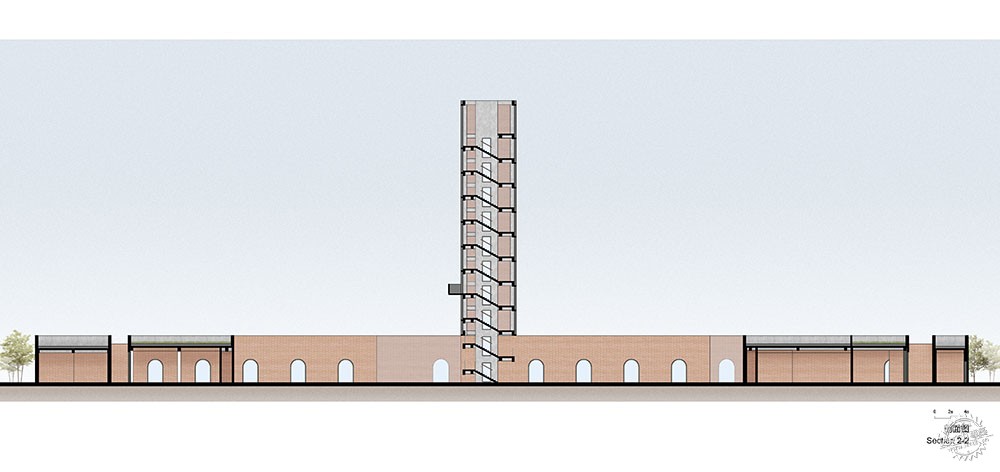
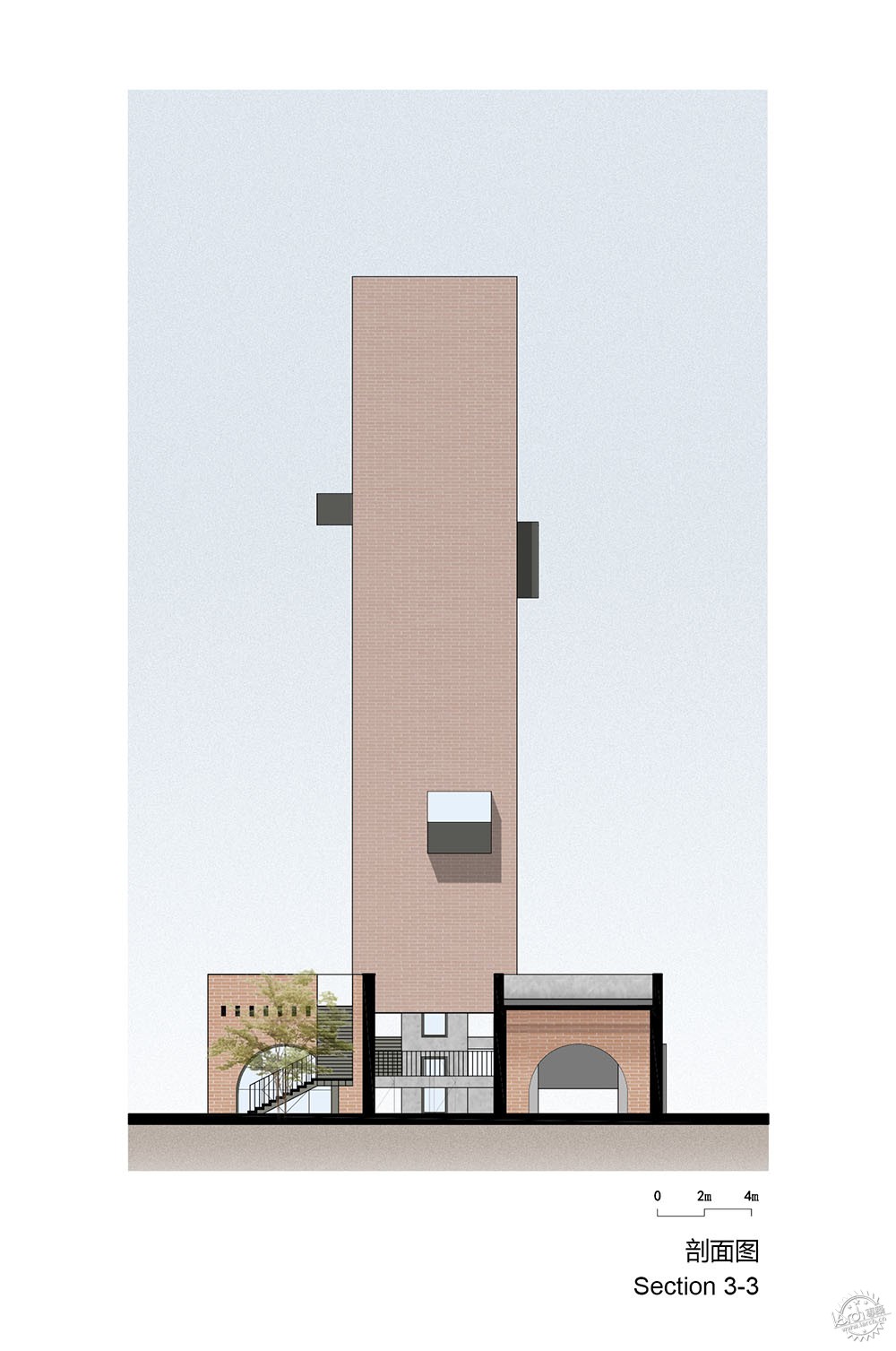
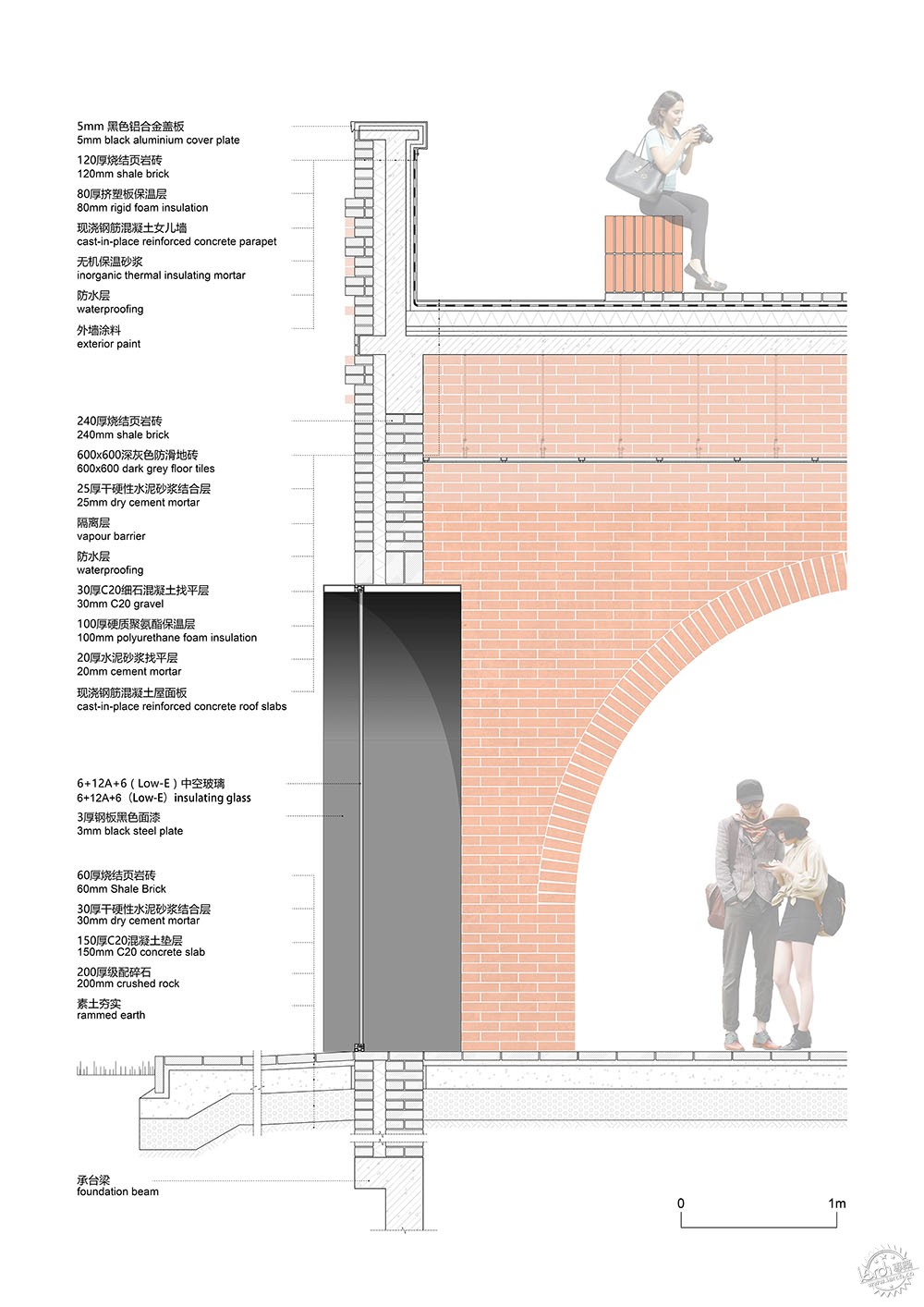
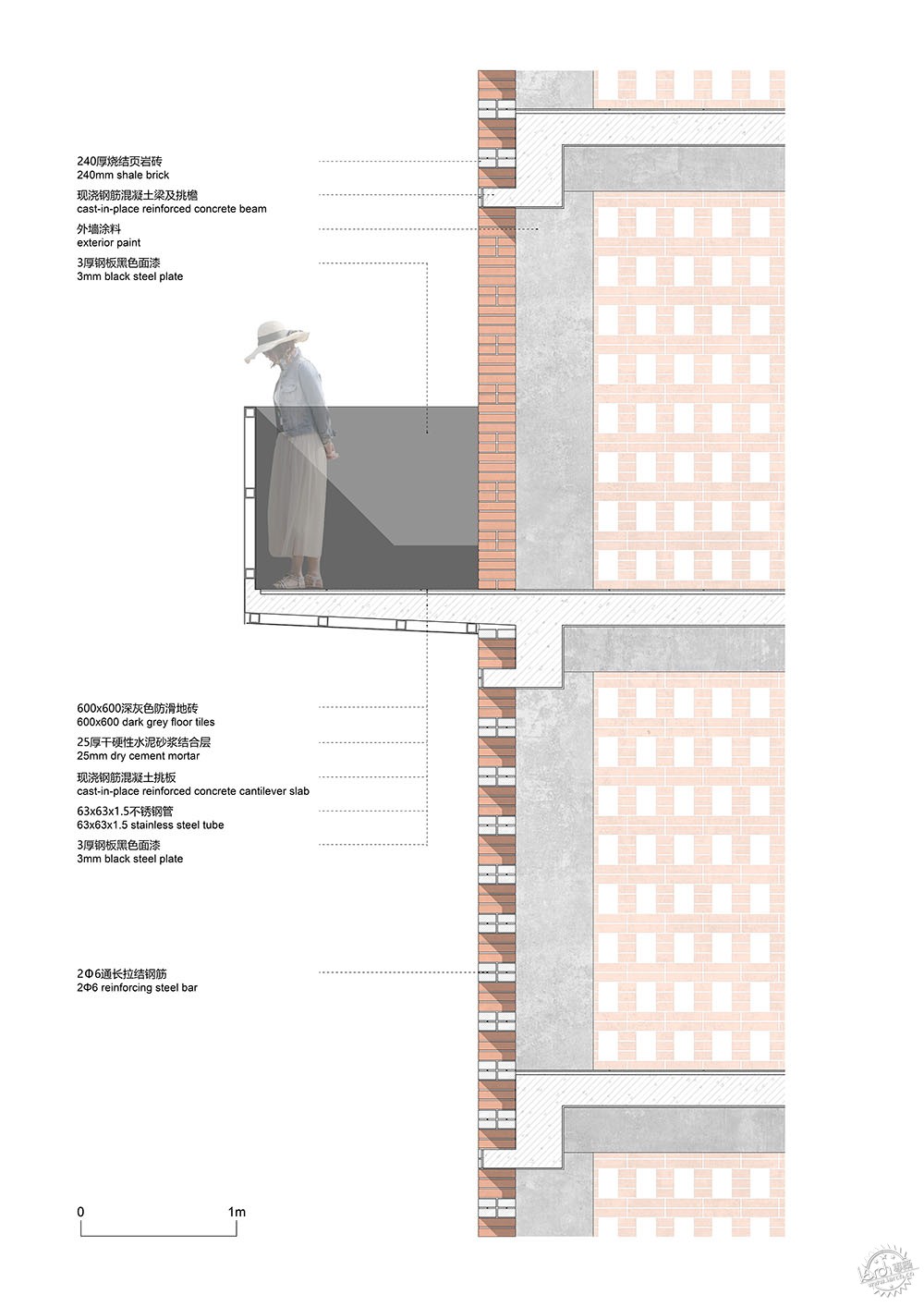
项目信息:
项目地点:河北省衡水植物园
建成年份:2016-2018年
建筑面积:2065㎡
建筑高度:35.6m
功能:展示
结构形式:混凝土框架
设计单位:空格建筑
主持建筑师:高亦陶,顾云端
团队:高亦陶,顾云端,岳泽兴,胡仙梅,陈璟,黄晋
建设单位:衡水植物园
施工图合作设计院:北京东方利禾景观设计有限公司,北京新纪元建筑工程设计有限公司
摄影:值更
Project data and credits:
Project location: Hengshui Botanic Park, Hebei Province, CHINA
Project year: 2016-2018
Size: 2065 sqm
Height: 35.6m
Function: Exhibition
Structure: Reinforced concrete
Architects: Interval Architects
Principal-in-charge: Oscar KO, Yunduan GU
Team:Oscar KO, Yunduan GU, Zexing YUE, Xianmei HU, Jing CHEN, Jin HUANG
Client: Hengshui Botanic Park
Associate design institutes: Orient Liho, Beijing New Era Architectural Design Ltd.
Photography: Zhi Geng
来源:本文由空格建筑提供稿件,所有著作权归属空格建筑所有。
|
|
